


















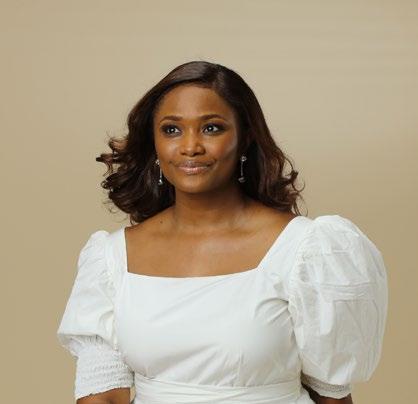 OnahNwachukwu Editor, THEWILL DOWNTOWN
OnahNwachukwu Editor, THEWILL DOWNTOWN
that
custom-printed




for the interior design and fashion industries. Her design aesthetics are primarily influenced by her time in Nigeria and the UK, so she is a fusion of both cultures. Interestingly, she didn’t always start with her brand Banke Kuku; it was her side hustle before it became her main business, as she worked for a fashion house in London before eventually starting the Banke Kuku brand full-time. She started designing textiles for fashion houses and then went on to have her own soft furnishing line, which was successful and sold globally. The loungewear which she became known for was to compliment the soft furnishing. Although she had her soft furnishing line, her true joy was in fashion design. The Banke Kuku brand is a luxury brand, and Banke describes luxury as moving at a slow pace so you can take in the exceptional experience. She also says slow fashion is about creating pieces using good quality materials and crafting them with immense attention to detail. Read Banke’s interview on pages 8 to 10 for more information about the brand.
Finding the ideal pair of jeans can prove challenging, but getting the perfect fit is relatively easy. We compiled a comprehensive list to help you choose the perfect jeans for your body type.
Do you have a small space? You can still make your décor out of this world, and we show you how on page 14. Find out ways to decorate your small space to make it bigger. This is a must-read for those with mini flats and studio apartments.
Don’t forget to click on the instructions below the QR codes on page 16 to download our bubbly playlist. I promise you’ll love it. Until next week, enjoy your read.







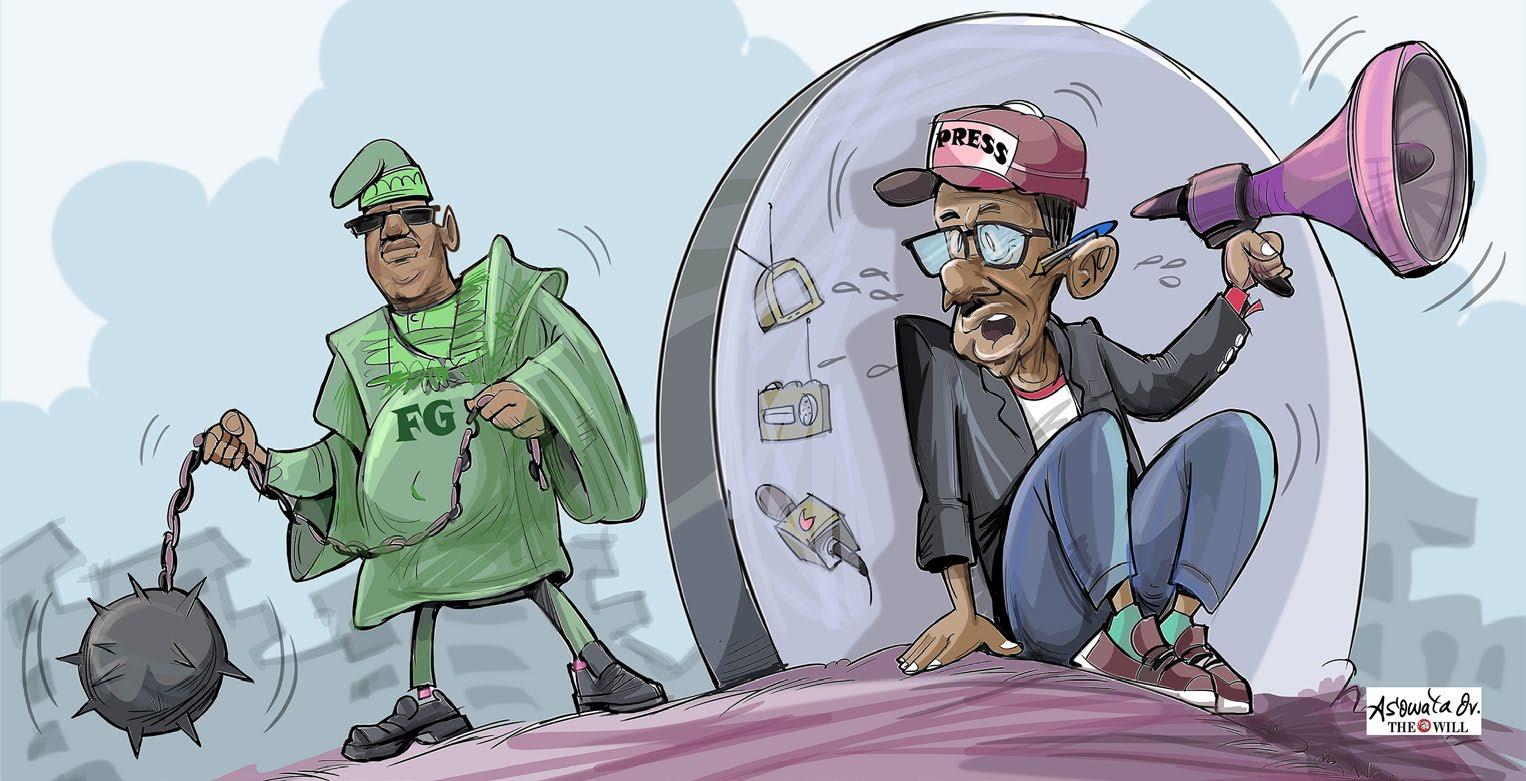
There is uneasy calm in the polity over the moves by the Federal Government to clamp down on those it believes were behind recent calls for a military take-over of the reins of power following increasing hardship, hunger and poverty in the country.
While a segment is justifying the move, saying such calls are simply unwarranted and should not be allowed in a democratic setting, another section of the society is condemning the move.

Those against the move are also citing the fundamental human rights of every citizen to express his or her views in line with the freedom of speech that is also guaranteed under democratic dispensation.
However, there are limits to freedom of expression even under a democratic dispensation to the extent that calls for a coup in the present circumstance could be considered a treasonable action.
Even before the Minister of State for Defence, Bello Matawalle, raised his official, condemnatory voice against those calling for a coup d’etat, which could cut short the democratisation process in the country, politically discerning Nigerians had voiced their
disapproval of the calls.
Prominent among them is the one by a former Provost of the Lagos-based Nigeria Institute of Journalism, lawyer and journalist, Mr Gbemiga Ogunleye. In a brief but deep article titled, ‘Rule by the Gun? Never Again!’ and published on February 26, 2024.
Ogunleye urged netizens discussing with zeal and gusto why a military takeover of government was the best solution to the hardship in the country, to reflect on the free, unregimented atmosphere, liberty of expression many could express fully in the media and the potential ahead of them.
Ogunleye admitted that there was hardship in the country and that the immediate impact of the government’s sudden removal of petrol subsidy and unification of all segments of the forex exchange had been negative, but he insisted that the system of government best suited to correct its defects was democracy.
He submitted in the essay: “Is there hunger in the land? The answer is an unequivocal YES. Is there anger in the country? I again say yes. Are many Nigerians losing hope and faith in their country? I answer in the affirmative.''
He agreed that the government’s removal of fuel subsidy and its decision to float the naira have occasioned unimaginable inflation and galloping prices never thought imaginable. But are these hardships and pain enough reasons for the invitation to the military? he asked.
“My view is that we should not cut our nose to spite our face. As a philosopher has stated, democracy may not be the best form of government, but the human mind has not conceived a better alternative, ” he replied.
Taking a look at the matter, Professor of Strategy and Development, Anthony Kila, said that those who are calling for a military coup are merely expressing their frustration with the system, nothing more.
“I think they are expressing their opinions which is allowed in a democracy,” he told THEWILL on Friday, adding that the government “can move to stop them if it has evidence that such persons were bent on taking action to actualise their plans.”
Given that the military had disclosed sometime in February 2024 that “there were pressures from unnamed quarters for a takeover of government,” in the face of the
worsening insecurity and their continued pledged of allegiance to constituted authority .
Chief of Defence Staff, General Christopher Musa, in a recent statement at the inauguration of the 6 Division of the Nigerian Army and Officers Transit Accommodation in Port Harcourt, said it is therefore taken that there are identifiable entities engaged in rumour mongering about a coup plot.
BACKGROUND TO MINISTER’S DIRECTIVE
According to dependable government sources, this disclosure by the military that some unnamed advocates had piled pressure on them to take over government as well as the sustained campaign on social media that prompted the minister to issue a directive to the Defence Intelligence Agency to clamp down on those found to be involved in championing the call for a coup.
According to the Minister of State for Defence, Dr. Bello Muhammed Matawalle, the Defence Intelligence Agency (DIA) should go after those calling for military takeover which would roll back the progress of democracy in Nigeria and bring them to justice.
The minister said, “Those calling for the undemocratic change of government as agents of darkness and warned them to desist from their inglorious activities or face the consequences as the government will not treat those behind it with kid gloves. The military has come to reality with democratic government in Nigeria and they are focused on their constitutional duty to defend the Constitution.
“Those calling for a coup do not love Nigeria. Under the present government, there will be no military takeover of power.”
He warned, “all the propagators calling for truncation of the constitutional government to desist from it and face the democratic reality on ground,” as he “directed the Defence Intelligence Agency (DIA) to go after the criminals and enemies of democracy and bring them to justice.”
The real reasons discerning Nigerians have voted with their feet against military rule and vowed to support democratisation with its teething and sometimes trying challenges are the differences in comparative economic and development history between military regimes and civil rule.

Remedial in upgrading infrastructure as some of the military regimes have done since 1966 till 1999 with an interval in 1979 to 1983, their damaging influence has been the abolition of federalism and the imposition of a unitary system of government with the first military coup on January 16, 1966. This has led to the emergence of a powerful centre and weak, dependent units that are sapped of any creative and competitive energy that once assisted pre-military governments to boost economic growth and development.
The return to democracy in 1999 and its sustenance for the past 25 years has challenged Nigerians to the possibility of living under governments under the rule of law, liberty and inclusive governance.
Interestingly, an interesting study titled, ‘Federalism, Military Legacies and the Restructuring Debate in Contemporary Nigeria’ by two Nigerian lecturers at the University of KwaZulu –Natal, Durban, South Africa, Ebenezer Oni and Olumiyiwa Faluyi, goes to the heart of this matter. The authors make an informative comparative analysis of affairs under military regimes and democratic governments in Nigeria.
In summary, they submit that overtime, federalism has become an attractive and acceptable political arrangement designed to govern multi-ethnic, multireligious and multi-cultural societies, such as Nigeria. It
purports to cope with the twin objectives of maintaining unity and preserving diversities.
However, the intervention of the military in the body politic of Nigeria in 1966 disrupted an effective federal structure that brought much prosperity to Nigeria as a nation and its federating units in the country’s First Republic between 1960 and 1966. This was replaced with a unitary, command and hierarchical structure which wholly define the nature and character of the military organisation.
Military governance system permeated the entire Nigeria’s political fabric, empowered the Federal Government to become ‘Almighty’ while it eroded the autonomy of the federating units in all its forms. It is against this background that this paper examines the restructuring debate in contemporary Nigeria within the context of the legacies of military regimes on Nigeria’s federal system.
The paper argues that good governance and development can only be attained in Nigeria when the present lopsided federal arrangement is redesigned to allow for power devolution and resource control in such a manner that makes both the national and sub-national governments ‘independent and coordinate’ in the true sense of it.
Commenting on this development, a security expert, Dr Kabir Adamu expressed his delight as a person and as founder of an organisation that the current democratic dispensation is the longest spell of democracy in terms of the Fourth Republic, Nigeria has had since independence in 1960,
He said, “We have made mistakes along the way and will probably continue to make mistakes because that is how countries grow, even the most advanced democracy at a point fought a civil war and recently one of their presidents ordered an invasion of parliament. What is important is for internal mechanisms for correcting mistakes to work and will continue to make mistakes because that is how countries grow.”
Dr Adamu, who is the Managing Director of Beacon Consulting Limited, a renowned firm providing enterprise risks and security management solutions spoke to THEWILL on Friday.
Addressing the topic, he referred to studies that have identified state fragility as the cause of the failure of democracy and the current wave of coups in Africa.

“
As Nigerians, we have to admit that a lot is wrong with our system and be ready to admit the errors and begin to correct them, I mean the rule of law, autonomy of the arms of government, freedom of the press, a strong and virile civil society and improved economy and such things
He said, “As Nigerians, we have to admit that a lot is wrong with our system and be ready to admit the errors and begin to correct them, I mean the rule of law, autonomy of the arms of government, freedom of the press, a strong and virile civil society and improved economy and such things.
'' We need to domesticate the concepts of democracy to the point that the needs of our people are met so that we can so that democracy is thriving.”
Prof Kila supports this view. According to him, two major things will checkmate the recourse of people to call for change of government : “Good governance and constant communication. Government must never cease to explain to the people whatever they are doing or plan to do so that they can always get feedback from the citizens.”
Curiously, a presidency source who confided in THEWILL shared these views, though in a roundabout manner. According to him the government has realised at some point that issues of policy were taken without proper consultation.
He said: “But you can give it to President Bola Tinubu that he is a listening leader. Every inch of the way he has reversed himself on many policy positions when he got feedback from stakeholders about the negative impact on the citizenry.
“We have seen the issue of state police, the readiness to probe some baleful policies of the immediate past administration, the readiness to implement the Oronsaye Report, the student loan scheme that should have been launched last month but had to be reworked when some operational issues were raised and generally about the massive reforms going on in agriculture, the banking sector and foreign exchange system. When we appeal to Nigerians to be patient with the government, it is done with the understanding that reforms will take some time to begin to yield results.”
He denied the fears being raised in the public that the minister's marching orders to the DIA was a subtle way to begin implementation of a strong official opinion on the need to regulate social media, as epitomised in the expression by the Chief of Staff to the President, Femi Gbajabiamila, who recently said that, “Social media has become a societal menace. It must be regulated. As citizens become more interested in governance, it is the government's obligation to ensure that engagement with citizens springs from sharing. Agreement on what the truth is, what is real and what is not.”
The voices for or against the purveyors of the call for change of government converge on the need for inclusive governance.
Mr Ogunleye, whose informed piece was cited earlier, urged government and its functionaries to drastically cut down on the cost of governance and adhere to the principles of due process, fairness and justice. According to him, political office holders should take courses in emotional intelligence.
Dr Adamu spoke specifically to the Minister’s directive when he said that all the government needed to do was to find out the persons making the calls and get their Internet Protocol, IP addresses or use generative intelligence to track them down and invite them for questioning.
Professor Kila states that the government needs to realise that people will always express their opinions in a democracy. Those opposed to the views expressed should strive to prove the opinions wrong through effective communication.
“Most often governments do that through democratic governance,” he maintained.
L-R: Former President, The Nigerian Academy of Science, Prof. Gabriel Ogunmola; President, Nigeria Academy of Science, Prof Ekanem Braide; President Bola Tinubu; former Presidents, Nigeria Academy of Science, Prof Oyewole Tomori and Prof Mosto Onuoha, during the investiture of President Bola Tinubu as Grand Patron of Science by the Nigerian Academy of Science at the Presidential Villa, Abuja on March 7, 2024.
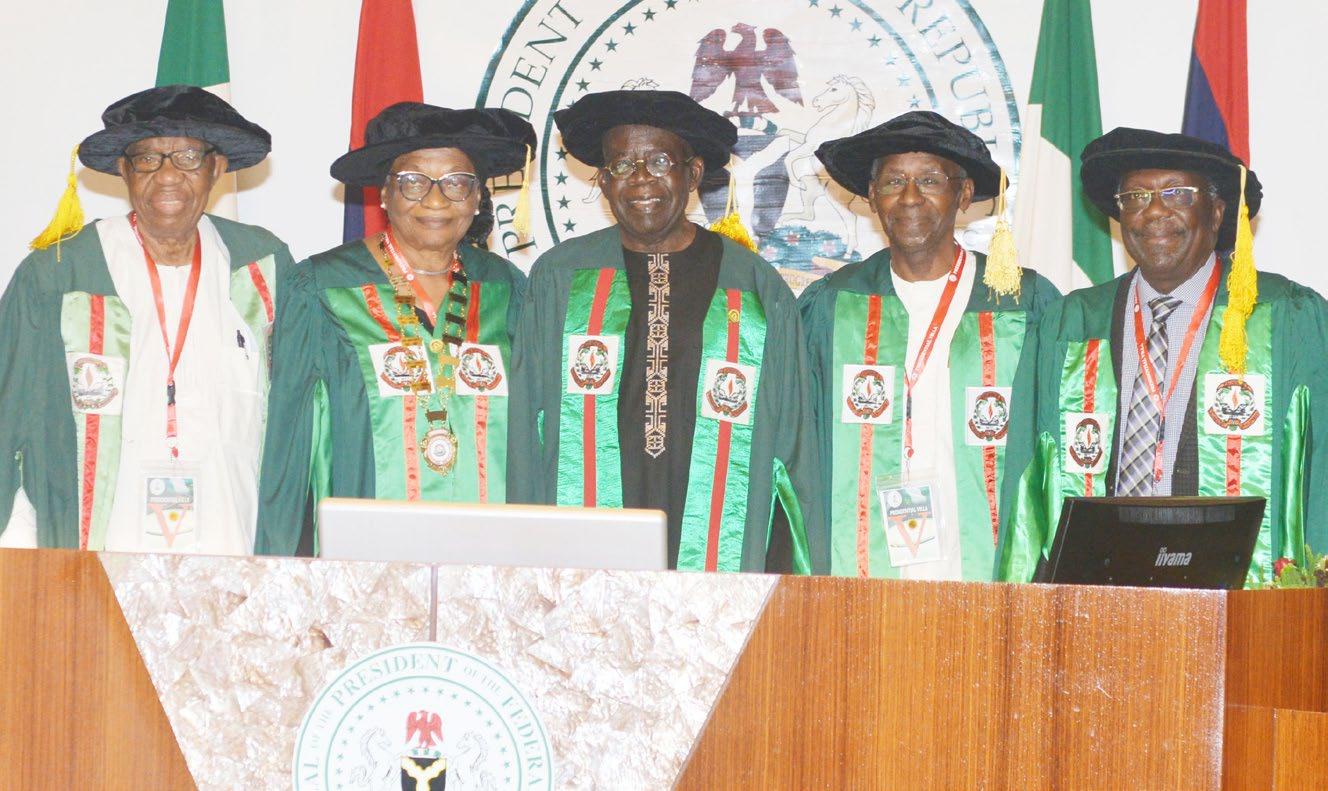
The Comptroller-General of Nigeria Customs Service (NCS), Bashir Adewale, has said that President Bola Tinubu has directed total compliance with the Export Prohibition Act in respect of food items, to check smuggling of the commodities out of the country.
The measure, Adewale said, was to also ensure the availability of food items in the country.
He disclosed this during a meeting with the leaders and members of the Dawanu Grains Market Association, Kano, on Friday.
He stated that the Act had not been implemented in the past because Nigeria had food sufficiency then.
He said now that the country was going through a food crisis, the President directed that the Act must be fully implemented to ensure that the food items were not exported when people were in dire need of them.
The comptroller-General then urged the Dawanu grains dealers to assist the government by complying with the directive banning the exportation of food items, to provide enough food to the people.
Across section of traders that were affected by the Bayelsa State Government’s order on relocation of the Etegwe-Okutukutu off Tombia Road in Yenagoa Local area have not only lamented their woes but also blame the government for their current predicament as most traders could not do business on the government allocated area due to absence lack of facilities, such as borehole security, accessibility, refusal of customers to patronise them and consequently appealed to the state government to match action with words.
Speaking to journalists on fact finding, traders, such as Sunday Obi from Kolokuma/ Opokuma, Governor Douye Diri’s kinsman, knocks Bayelsa State, saying there is nowhere two markets could exist within one community, they are giving the government dirty slap, asking them to leave where they have being doing business, but chased them to a swampy land that is flood prone, haphazardly sand-filled without an abbatoir, water and security for their goods at the end of the day, saying government’s insensitivity had given private market owners to frustrate government good intention, calling on governor Douye Diri not to pay them back in bad coins after their massive support for his Governorship election.
Unknown Gunmen Kill Four Policemen, Two Others in Ebonyi
BY SUNDAY OGBUEbonyi State Police Command has confirmed the killing of four security personnel and two civilians, by gunmen, on Friday morning.
The Police Acting Public Relations Officer, DSP Joshua Ukandu, disclosed this in a statement he signed and made available to Journalists.
According to Ukandu, the officers of the Command were attacked by the hoodlums at their duty post, at hilltop, along Nwofe road, on the outskirts of Abakaliki.


"It is unwise for a reasonable and sincere country to embark on the exportation of food items when her own citizens are in need of them.
"You are big stakeholders in this direction and these are the reasons why I am here to interact with you and solicit for your support" he said.
In his remarks, the President of the Dawanau Market Development Association, Alhaji Muttaka Isah, told the comptroller-general that members of the association were facing several challenges which included "the unfounded allegation in some quarters that our dealers hoard grains in their warehouses.
"I want to seize this opportunity, Sir, to deny this baseless allegation and to inform Nigerians that we do not hoard foodstuffs; whatever grains we procure from the growers and other sources, we store them in our warehouses for a while, before we supply them directly to our customers in the markets.
"So, we store these grains for operational convenience and to protect the foodstuffs from any foreign bodies that might spoil them. That is the truth.
"Can you imagine, during the election they came to campaign for our votes and now that they have won. See what government is doing to us"
Also speaking Gladys Internet urged the government to sink a borehole and a slaughter house and condemned the haphazard sand-filling and without perimeter fencing .
While Elo Edward and ljeoma Ukeagbu spoke against the government’s insensitivity towards their plight.
According to them, last Saturday when government took action, traders moved to the designated area. Now that government had gone to sleep five private market owners have rendered government good intention’s prostrate.
Speaking, the Chairman of the Etegwe - Okutukutu Market association,Alhaji Dahiru Yau said,there is no where people can trade in this market without the provision of basic needs of the market, such,as toilet,access road, perimeter fencing, borehole and security,calling on government to provide these amenities for the market to boom and that the absence of these basic needs have continued to scare traders,hence they preferred the private markets springing up along the Okutukutu-Etegwe communities.
The statement reads "Today 08/03/2024, at about 05:00 am, operatives of the Command who were posted to duty at hilltop stop and search/pin-down point along Nwofe Road, at the outskirts of Abakaliki, were attacked by armed hoodlums suspected to be IPOB/ESN members, who shot sporadically at the operatives.
"The operatives engaged the hoodlums in a fierce gun duel, and in the ensuing gun battle, the hoodlums scampered and abandoned a pump action rifle which was recovered. However, four (4) of the operatives paid the supreme price, while two (2) civilians were caught in the crossfire and killed.
"The Commissioner Of Police Ebonyi state police Command, CP Augustina Ogbodo psc, swiftly dispatched tactical teams of the command to the scene, who are on the trail of the fleeing hoodlums.
"We are using this medium to call on the good citizens of the State to provide the command with valuable information that could help apprehend the fleeing hoodlums, assuring that the command remains steadfastly dedicated to safeguarding lives and properties in the state."

 FROM DAVID OWEI, PORT-HARCOURT
FROM DAVID OWEI, PORT-HARCOURT
The remains of the late Group CEO of Access Holdings, Dr. Herbert Wigue; his wife, Chizoba and son, Chizi, were finally laid to rest on Saturday after a church service at the Redeemed Christian Church of God, RCCG, Tribe of Judah Parish at their Isiopo hometown in Ikwere Local Government Area of Rivers State.
Hundreds of friends, family members and associates from far and near were at the service to pay their last respects to the late Wigwes.
The Church service followed Friday's Christian wakekeep and commendation service and was attended by governors, captains of industry and politicians, including host governor of Rivers State, Siminalayi Fubara and his counterparts from Lagos, Babajide Sanwo-Olu; Ogun State, Dapo Abiodun; Duoye Diri of Bayelsa State and Alex Otti of Abia State. Others were former Governor Kayode
Fayemi of Ekiti State and James Ibori of Delta State, President of the Senate, Godswill Akpabio and ex-Senate President, Bukola Saraki.
Leading the pack of businessmen was Aliko Dangote; Aigboje Aig-Imoukhuede; the Labour Party Presidential candidate in the 2023 general election, Peter Obi; exEmir of Kano State, Sanusi Lamido 11, and many others who made the dignitary lists.
Speaking during the church service, Pastor in charge of Region 33, South-South, David Adeoye, reminded attendants of the shortness of life and urged them to devote their lives to the service of humanity like the late Wigwes did.
Senator Akpabio, who represented President Bola Tinubu paid a glowing tribute to the late Herbert Wigwe, describing him as a global icon who left enduring legacies in the areas of business, education and human capacity building, worthy of emulation.



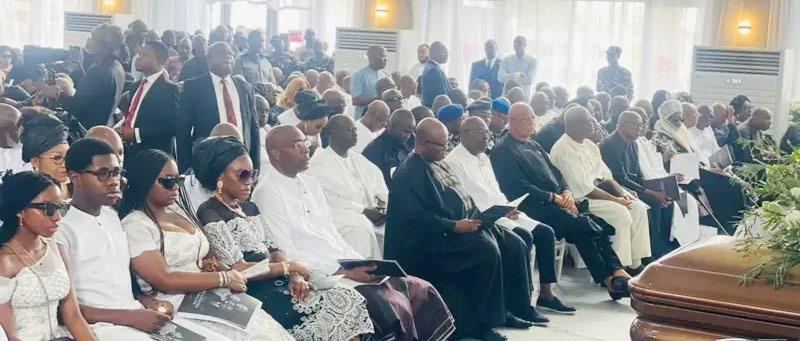
Like a topic that everyone enjoys discussing but never cares about its implementation, rotational principle in governance has been on the front burner in Nigerian intellectual and political circles for long.
Right from the tenure of Second Republic President Shehu Shagari whose party, the National Party of Nigeria, NPN, proposed to embrace “zoning formula and rotation of power” between the North and South, but failed to follow through, rotation has been a recurring decimal in national discourse.
A fortnight ago, Ojema Ojotu, a member of the Federal House of Representatives, PDP Apa/Agatu Federal Constituency of Benue State, revived the discussion by proposing a bill to include power rotation in the constitution for all elections. His proposal appears to be gaining traction not for its novelty but the attempt to give the plan a constitutional backing.
Earlier, during the life of the 9th National Assembly, the proposal reared its head at the Senate, but it was quickly shot down.That was in November 2022.
Senator Patrick Abba Moro, PDP Benue South had presented it as a bill during plenary. Senator Bala Ibn Na'Allah, APC Kebbi South and Deputy Senate President, Senator Ovie Omon- Agege, APC Delta Central, immediately rose against it.
Although both of them argued that they did not see the merit in the proposed bill as it seemed to contradict the principle of equality in democracy, they however stated that it should have been made part of the Constitutional Amendment exercise and not as an autonomous legislation coming from the Senate.
Ojotu’s visitation of the plan as a constitutional matter may therefore be said to be a step ahead of the 2020 fiasco that the proposal witnessed in the Senate.
The bill, which is yet to be listed for first reading, proposes to amend sections 133, 179, 48, and 49 of the Constitution to rotate the office of the President of the Federal Republic among the six geopolitical zones, with each state holding the presidency for a maximum of two terms.
Curiously, the proposed legislation aims to prevent the geo-political zones that have previously produced presidents since May 1999 from doing so again until all other zones have had the opportunity to produce a president.
If the current political dispensation is followed, the North-East, North-Central, and South-East
geopolitical zones, which have not produced presidents since 1999, are envisaged to be the first beneficiaries.
Moreover, the draft bill also seeks to rotate the office of Governor among the three senatorial zones within a state, as well as senatorial elections among all federal constituencies within a senatorial zone.
The bill proposes that the office of the President shall revolve around the six geo-political zones, with each state holding the office for a maximum of two terms of four years each, to give every section and state in Nigeria a sense of inclusion, participation and representation in Nigeria’s democracy.
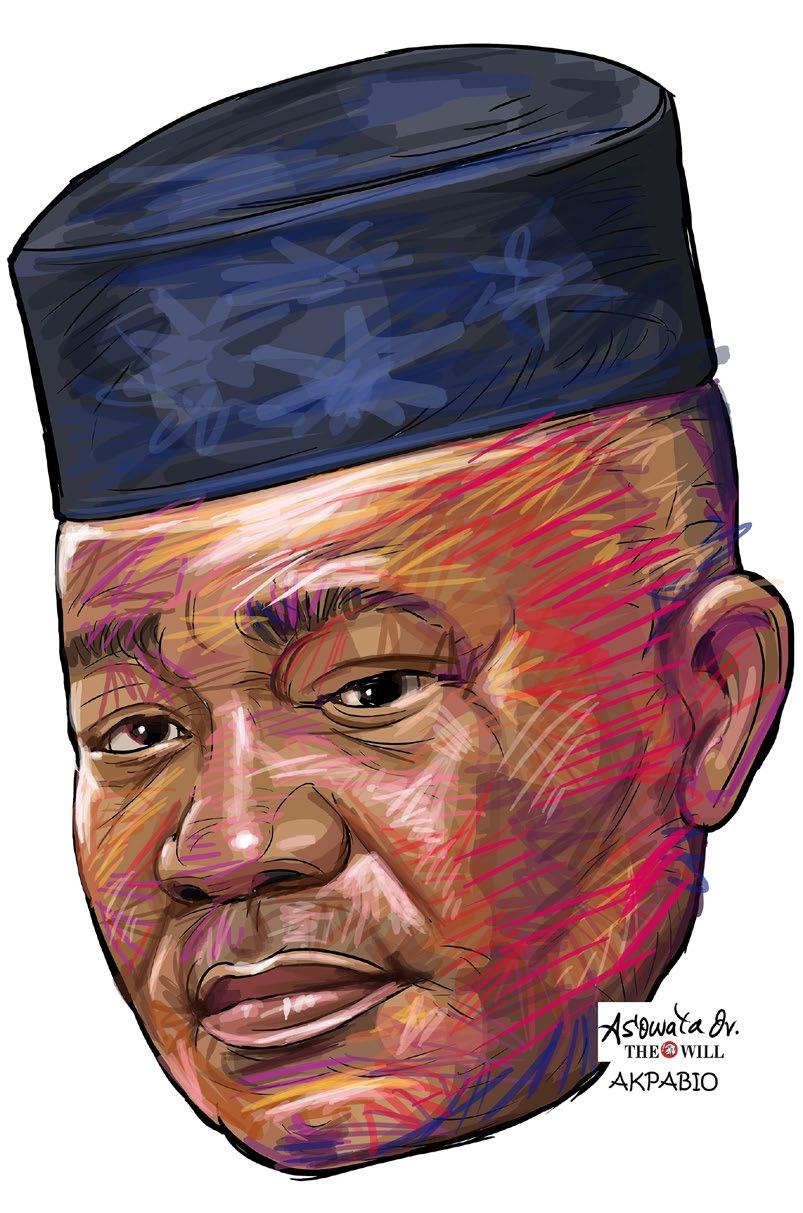
“
“(3) Any zone in Nigeria which has produced a President of the Federal Republic shall not be eligible to produce another President until the other zones take their turns.
“(4) the effective date for consideration in the rotation of power shall be 29th of May, 1999 when the Constitution of the Federal Republic of Nigeria (as amended) became effective.
Subsections 6 and 7 is being proposed to amend section 179 to read as follows; “(6) The office of the Governor of a State in Nigeria shall revolve round all the three Senatorial Zones in the State, to give every indigene of the State a sense of inclusion, participation and representation in the development of the State.
“(7) Every Senatorial Zone in a State which has produced a Governor of that State in a democratically conducted election shall not be eligible to produce a Governor, unless and until other Senatorial Zones produce Governors of the State.
The amendment to section 48 is to add subsections (1)
The bill proposes that the office of the President shall revolve around the six geo-political zones, with each state holding the office for a maximum of two terms of four years each, to give every section and state in Nigeria a sense of inclusion, participation and representation in Nigeria’s democracy
(a) (b) to read thus; “(1) (a) Senatorial election shall rotate round all the Federal Constituencies in the Senatorial Zone to give a sense of inclusion, participation and representation in the Constituencies to engineer social progress and development.
“(b) Every Federal Constituency in a Senatorial District which has produced a Senator shall not be eligible to produce a Senator, unless and until all other Federal Constituencies produce a Senator.
Also, two subsections (1)(a) (b) are being proposed to alter section 49 to state that “(1) a. every Local Government which has produced a Member of House of Representatives shall not be eligible to produce a Member of House of Representatives upon cessation of tenure, unless and until all Local Governments in the Federal Constituency produces a Member of House of Representatives.
“(b) provided the occupant of an office in (b) above shall have served a full term of four years or any number of terms that Electorates validated through an election.”
As a diverse, multi-lingual, multi-ethnic and multi-national society, it is generally believed that Nigeria ought to uphold a power sharing formula that reflects the shared visions and aspirations of the many interest groups and nationalities making it.
As a multi-party democracy, it is expected to create equal opportunities for the different people in their different geo-political zones to fully participate in governance. The story of decades of democratic practice in the country has been contradictory; cries of marginalization, lamentation of hardship, worsening insecurity, call for separation and self-determination rent the air every now and then and heat up the polity. That is why power rotation has become a recurring decimal in the task to make participatory democracy work and resolve the fears, real or imagined, of every segment and geo-political zone in the country.
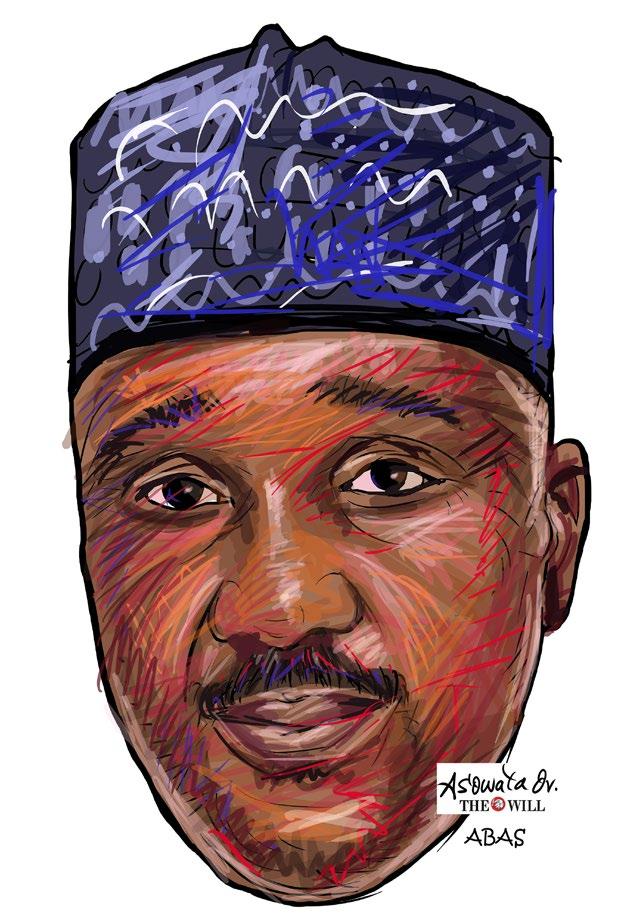
“
Arguing that the current practice, with its winnertakes-all mentality, has reduced successive governments in the country to oligarchies, the General Secretary of the Conference of Nigeria Political Parties, CNPP, Chief Willy Ezugwu told THEWILL, that the rotational proposal is a welcome development and he prayed the National Assembly to accommodate it in their current amendment to the Constitution.
He said; “When all elective positions are made rotational, that will save us the agony of the salience of tribe and ethnicity, bribery and corruption to an extent. Knowing that it will come to their turn, each zone will bid its time and work to produce their best in the spirit of competition. Tension and pressures on the system would be greatly reduced.”
Ezugwu however suggested that the term of office should be made a single tenure, unlike the current practice of two-terms of four years each, so that they can go round in quick succession. “Anybody who
When all elective positions are made rotational, that will save us the agony of the salience of tribe and ethnicity, bribery and corruption to an extent. Knowing that it will come to their turn, each zone will bid its time and work to produce their best in the spirit of competition. Tension and pressures on the system would be greatly reduced
has the quality of leadership does not need eight years to make a meaningful impact in governance,” he said.
Hassan Ardo Jika, the immediate past Nigerian Ambassador to the Republic of Trinidad and Tobago, does not think rotation is the solution to the many political challenges facing the country. For him, character, competence and will all be key deciding factors in the transformational leadership that Nigeria wants.
He told THEWILL in a recent interview, “I don't believe in zoning and have always advocated competence instead. It doesn't matter where the President comes from. What matters is someone with the political will and capacity to deliver. That is all.”
For the Igbo Elders Consultative Forum, the principle of rotation should be easy to operate as it has been part of the Constitution except that the Nigerian ruling elite has been unserious in operating it.
According to the Secretary of the group, Professor Charles Ikekeaku, rotational principle is constitutional by virtue of the Federal Character Principle as enshrined in the 1999 Constitution as amended.
Citing Section 14 (3) of the Constitution, he said, "The composition of the government of the federation or any of its agencies and the conduct of its affairs shall be carried out in such a manner as to reflect the federal character of Nigeria. It also provides that there is a need to promote national unity and command national loyalty and thereby ensure there shall be no predominance of persons from a few states or from an ethnic group or from other sectional groups in the government or any of its agencies, among others."
The federal character principle implies there is a rotational principle in the constitution. He thinks that the National Assembly should amplify it according to the force of the Constitution.
He proposes that the Igbo have a first shot at the presidency, should the principle become constitutional and operational.
He said the South-East occupied the position for six months during the tenure of General J.U.T AguyiIronsi in the First Republic and not even since.
Admirably, a leading light in the Nigerian left, Dr Edwin Madunagu, supports the rotational principle. Taking a historical position since the Second Republic government of Alhaji Shehu Shagari when the, “zoning or rotation” of power between North and South was first mooted, Madunagu argues that the Nigerian ruling elite have always used the “rotation or zoning” principle for convenience without the intention to observe it in practice unless it enables them to feather their nests at the expense of their rivals or opponents.
“In place of the present office of the president, let there be a Collective Presidency or Presidential Council of six equal members, each member representing a geopolitical zone. The tenure of the Council should be four years and the headship within that tenure should rotate between the members every eight months,” he said.
Two weeks to the kick-off of campaign in the September 21, 2024 Governorship Election in Edo State, the governing Peoples Democratic Party, PDP, and its main rival, the All Progressives Congress, APC, are battling internal conflicts that may pose an obstacle to their smooth take-off.
For the PDP, the lingering supremacy battle between Governor Godwin Obaseki and his truculent deputy, Philips Shaibu, boiled over mid-last week when the State House of Assembly initiated an impeachment process against the latter.
Shaibu was given seven days to reply to the allegation levelled against him by 21 out of 24 lawmakers who signed the March 5 letter addressed to him. The accusations are mainly two-fold: leaking of official secrets and perjury.
Shaibu is accused of leaking of official secrets through the July 2023 suit he filed at the Federal High Court, Abuja Division, against the three arms of government of Edo state, “contrary to his oath of office to keep official secrets in line with the Constitution of the Federal Republic and the Official Secret Law, 2013…”
The other allegation, which borders on perjury, deals with the same suit in which he, “alleged that he was prevented from attending the state Executive meeting of 3rd of May and 19th of July, respectively, knowing same to be false but with intent to bringing the Edo State Government to public odium and opprobrium; an act bordering on perjury and is thereby guilty of gross misconduct.”
The seven days started counting on last Wednesday with Tuesday this week as terminal day.
As at press time on Saturday, there was no indication that Shaibu would respond as he maintained his defiance that increased with his conduct of a parallel party primary a fortnight ago and declared himself the party’s governorship candidate, followed it up with a trip to the party’s Abuja headquarters last week to demand a Certificate of Return that the party has given to its official candidate, Asue Ighodalo.
Remarkably, he had threatened to go to court to “recover his mandate.”
But the party said it remained unfazed by the deputy governor’s legal threat.
Responding to this legal threat, the Deputy National Publicity Secretary, Ibrahim Abdullahi, said the PDP was not worried about the warning of the deputy governor of Edo State, Shaibu and “his continual campaign on the social media.”
He said, “We are not worried. We wish the deputy governor well on his journey to the court. We are waiting for him. We cannot continue to run this party like this. Is he the only one who contested the primary? Why is he going on like this?
“There were 10 of them that bought the form. The rest have accepted the reconciliation move of the party. Have you heard any of them say they were coming to the party to ask for a certificate of return? This is a recipe for a crisis. We cannot waste our time if someone is not ready for reconciliation. We have a legal department.”
One of the 10 aspirants on Friday reared his head. Just when the Shaibu threat was being snuffed out with the impeachment notice, another aggrieved aspirant who felt muscled out of the primary election, Anselm Ojezua, on Friday filed a suit at the Federal High Court in Abuja against the party.
The suit with No: THC/ABJCS/304Q is between Ojezua as Plaintiff and Asue Ighodalo, the Peoples Democratic Party, and the Independent National Electoral Commission, INEC, contended that the primary election was held in disregard to the rules of the game.
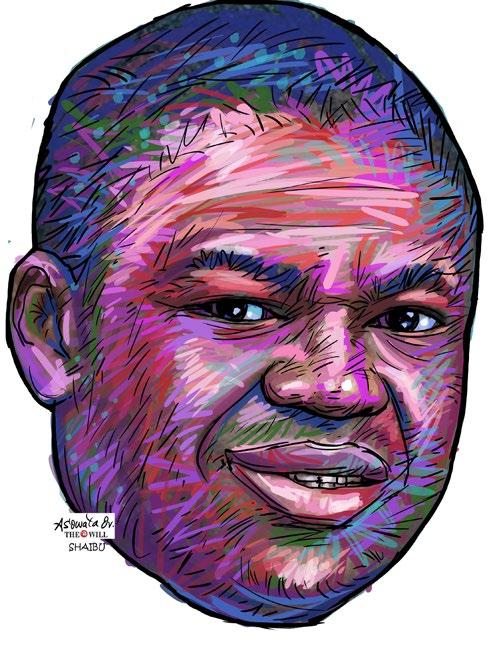

On the matter involving Shaibu, investigation shows that the party, having exhausted its internal mechanism to reconcile him to its decision that, having met the legal and party rules for the conduct of a party primary election, Asue Ighodalo remains its official candidate and it is prepared to protect that mandate.
The party’s decision has strengthened Governor Obaseki’s hand to move against his deputy so as to avoid the distraction that Shaibu’s continued defiance would cause the party, going into campaign for the governorship. Meanwhile, a few party officials have raised their voices against the impeachment move, calling for more talks of reconciliation so as to enter the campaign as one united house.
“There were 10 of them that bought the form. The rest have accepted the reconciliation move of the party. Have you heard any of them say they were coming to the party to ask for a certificate of return? This is a recipe for a crisis. We cannot waste our time if someone is not ready for reconciliation. We have a legal department
Notable among them is the publicity secretary of the party in the South-South, Bishop Ari, who, at the weekend, lamented that “it is a bad development and indeed a sign of failure of the leadership of the party in Edo State to allow internal political disagreements to snowball into a major crisis that could jeopardise the chances of the party in the forthcoming governorship election in the state.”
Officials of the deputy governor failed to respond to questions sent by THEWILL.
Like the PDP, the APC is faced with an internal crisis that snowballed from the final primary election which threw up Senator Monday Okpebholo as its candidate.
The second runner-up in the primary election and member of the House of Representatives, Dennis Idahosa, on March 4, wrote to the Independent National Electoral Commission, INEC, urging it not to recognise Senator Okpebholo as the party’s candidate because the rerun poll where he emerged was illegal. Rather, he insisted that the February 17, 2024 poll, which he (Idahosa) won, was the only poll known to law.
On March 4, he notified the INEC of a lawsuit marked FHC/ABJ/CS/274/2024 between Idahosa and Okpebholo, which prevented the electoral umpire from accepting the latter as the party’s candidate.
The APC and INEC are joined in the suit which is being handled by his counsel, Chief Wole Olanipekun (SAN), who is demanding that Idahosa be recognised as the Edo APC governorship candidate.
Although the Resident Electoral Commissioner in Edo State, Dr Anugbum Onuoha, had stated that the February 17, 2024 primary election of the APC that he witnessed was the one that held at the Lushvill Hotel and Suites, which produced Senator Okpebholo, and not the one that was supervised by Governor Hope Uzodinma that produced Hon Idahosa, the court may have to discharge the suit to get APC off a legal bind and clear the path for it to begin electioneering without tears. It was the party’s National Working Committee that declared the February 17, primary election inconclusive and carried out a rerun. APC officials did not reply to messages sent to their phones nor answer phone calls. The following week remains crucial for both parties to set their houses in order before the campaign kicks off in April.
During a condolence visit by the PDP Governors’ Forum to Governor Caleb Mutfwang at Government House, Rayfield, Jos, on February 1, 2024, the Chairman of the forum and Governor of Bauchi State, Bala Mohammed, described and referred to their host as ‘the miracle governor.’
The metaphor, or compressed simile, is well earned and well placed. Nineteen days earlier, Governor Mutfwang survived a tortuous, excruciating and well-orchestrated ambush by political desperados who sought to thwart the will of the people when the Supreme Court upheld his election as impeccable and valid in law and electoral order. Many, including his own, had lost faith and did not see him emerging victorious at the Supreme Court.
This was after a cycle of violent attacks on villages in the central and northern parts of the state that did not only engage the new administration in more than proportionate measures, but constituted such a costly distraction that many feared the machinery of government and its chassis would capitulate, collapse, and even surrender.
The inauguration of the Caleb Mutfwang Administration, it would appear, was a turbulent and troubled inheritance stretching from a looted and empty public treasury to a depleted and decimated work force, high debt profile, a traumatised and despairing population in need of leadership and direction, to the management of bloodshed, killings, mass burials, a surging wave of refugees and internally displaced persons and an humongous humanitarian crisis that caught the attention of international concern, commentary, and condemnation.
It is remarkable that the Mutfwang administration did not collapse, or succumb, or lose focus in the wake and rage of the trials. Rather - or as it appears, the challenges of the earliest beginning has sharpened his focus and strengthened his resolve to provide leadership in fact and indeed.

After the celebrated Supreme Court judgement that affirmed his populist electoral victory and the political masterstroke orchestrated during the February 3 rerun Jos North Senatorial District and Jos North/Bassa federal constituency elections that extinguished the opposition beyond recognition and redemption, the Mutfwang governmental rollercoaster appears to have consolidated from steaming to cruising.
The administration has taken a functional stock of the environmental needs of the State, and has started implementing the policy of completing uncompleted projects inherited from past administrations. Thus, there is a massive revamping and redefinition of roads, bridges, and layouts within the Jos-Bukuru metropolis. The programme has seen to the renewal of roads and streets, and the reconstruction of some that had collapsed and remained derelict, and a nightmare for residents of those areas.
There is a revolutionary stride in the transportation subsector of the state economy. One is the revitalisation of rail metro service; a development that has thrown residents of Jos and its environs into a frenzy as they recall and report that the last time a mobile train was experienced and sighted in Jos was some forty two years ago – in 1982! The resuscitation of train transportation has also led to the renewal and upgrading of train transportation paraphernalia such as the tracks, train stations, and the railway terminal or main station.
A corollary of this transportation boost is the rebirth and reintroduction of the Tin city metro bus service. In the first effort, the Government has procured fourteen fully air-conditioned, 88-passenger capacity luxurious buses that are to begin operation along eight defined routes within the Jos Metropolis. This itself is a development with far-reaching implications for the local economy. One is that the famous Terminus Market, gutted down by fire twenty two years ago in 2002, and about which the immediate past administration dissipated huge budgets without meaningful results, will receive a face lift. In a plan announced by the Secretary to the government of the State during an interface with traders last week, part of the old moribund market ground will be converted and built into the terminal of the revitalised metro bus service. Accordingly, the traders who are currently occupying the premises of the burnt market illegally, by mutual engagement and consent, are to move inwards to allow work begin and for the Terminal to come alive. Governor Mutfwang has been passionate about the state of education too, as he has always noted that not paying the required attention to quality education is a sure way to emasculate the future of the state. This has seen to critical tincturing of the administrative echelons in the state-owned tertiary institutions with the appointments of a vice chancellor, provost, rector for the state university, college of education, and polytechnic respectively.
From all intents and purposes, as governor of Plateau State, Caleb Manasseh Mutfwang is on a mission: if he cannot perform better than those yet to come, he must collapse and obliterate the records of achievements of those before him. In any case, his ultimate is to make
Plateau a global destination for excellence and quality life. This explains the interlink and interface of his seven-point agenda, hoping that he will achieve his quest to resolve the cycle of violence and humanitarian crisis that have been part of the bane of development in the State in recent times.
It is hoped that the National Assembly will be through with constitutional reforms that will allow the establishment of State Police as intervention in the growing security challenges of the country. In the meantime, Mutfwang has repositioned the State’s own local security outfit, Operation Rainbow, which has been working mostly to complement intelligence gathering for the security organs that have been working in the State.
Thus far, his foreign trips and engagements have been to explore the latest in terms of technology and skills to harness and deploy the resources that abound in Plateau.
According to sources in Government, there are plans by the government, after conducting appropriate soil investigation and veracity tests, to massively introduce cash crops seedlings into the State’s farming space, and encourage mass produce and exportation of agricultural produce in no distant future.
The resettlement of displaced persons as a result of recurrent attacks and crises is a programme aimed at restoring the native population to their farmlands, and to boost the confidence of the farming population towards food security.
On Wednesday this week, the Plateau State Governor will turn fifty nine years old. At 59, Caleb Manasseh Mutfwang, is certainly on the eve of a jubilee. After overcoming enemy machinations and ambushes on the way to Government House, he is also in the eve of destiny to become the leader he has always dreamt to become, one who managed the 53 ethno-cultural groups in Plateau to a unity of purpose by terminating myths and demystifying mythologies to found a modern Plateau where crisis, killings, and all humanitarian and sectarian upheavals shall become anathema.
It is remarkable that the Mutfwang administration did not collapse, or succumb, or lose focus in the wake and rage of the trials. Rather - or as it appears, the challenges of the earliest beginning has sharpened his focus and strengthened his resolve to provide leadership in fact and indeed

Reacting, last Friday, to the recent abductions of over 200 women and children in Borno and another 280 in Kaduna, Senator Tinubu described the kidnappers as evil and cowards. She therefore called for the imposition of capital punishment for the kidnappers, urging the various state governors to act fast and do something about this ugly trend
Ten years after Boko Haram struck in Chibok, a predominantly Christian community in Borno State in April 2014, making away with about 276 students of Government Girls Secondary School, Chibok, gun-totting bandits struck again in Kaduna last week, taking away over 280 school children.
As if marking a decade of the inglorious Chibok abduction, which brought the rural Borno village into national and international attention, last week's Kaduna kidnapping of over 280 school children and women, had all the semblance of the infamous 2014 kidnapping of the Chibok girls.
Last Thursday, the pupils and teachers of Government Secondary School and Local Education Authority primary school at Kuriga, Kaduna State were kidnapped by the terrorists, who invaded the Kuriga area of the Chikun Local Government Area of the State, started shooting at their victims before taking away no fewer than 280 of the pupils and teachers from both schools.
Only a day before the Kaduna abduction, the bandits had struck in Ngala, headquarters of Gambarou Ngala in Borno State, taking away some 200 women internally displaced women fetching firewood for survival in the bush. Penultimate Thursday, the hoodlums struck at the same Gonin-Gora in Chikun LGA, Kaduna State, abducting an unspecified number of women. Coming at a time the country's security forces are busy battling all forms of terrorism and banditry in different parts of the country, especially in the North East and North West, the recent Kaduna kidnappings of over 280 women and school children, some of whom are orphans and Internally Displaced People (IDPs) is another slap on the face and is totally unacceptable.
According to an Amnesty International estimate in 2015, no fewer than 2,000 women and girls had been abducted by Boko Haram since 2014. The terrorist group began targeting schools in 2010, killing hundreds of students and forcing many into sexual slavery.
Boko Haram insurgency has prevented over 10,000 children from attending school as the
group is known for kidnapping girls, whom it believes should not be educated, using them instead as cooks or sex slaves.
THEWILL recalls that on July 6, 2013, Boko Haram attacked Government Secondary School in Mamudo, Yobe State, killing at least 42 people, mostly students, and some staff members. On September 29, 2013, the group stormed the male hostel in the College of Agriculture in Gujba, Yobe State, killing 44 students and teachers.
While the Kaduna State government has promised to rescue the abducted as soon as possible, we want to agree with the First Lady of Nigeria, Senator Oluremi Tinubu, that kidnappers of women and children should face tougher sanctions and penalties instead of treating them with kid gloves.
Reacting, last Friday, to the recent abductions of over 200 women and children in Borno and another 280 in Kaduna, Senator Tinubu described the kidnappers as evil and cowards. She therefore called for the imposition of capital punishment for the kidnappers, urging the various state governors to act fast and do something about this ugly trend.


and its candidates.
It takes more than good intentions to mediate between a dozen very powerful, independent minded and outstanding political leaders that are equally zealous to offer their services for the development of their dear state and come out with an acceptable outcome like it happened in the just concluded APC governorship primary in Edo State.
Because of the passion and zeal shown by the contending aspirants, it was almost impossible to imagine a rapprochement that would make all the personalities agree on one candidate except the processes are seen to be fair, just and transparent.
GANDUJE HAS SINCE ASSUMING OFFICE, BROUGHT WITH HIM AN ALL-EMBRACING TRANSFORMATIONAL LEADERSHIP STYLE THAT UNITES, INSPIRES AND MOTIVATES PARTY MEMBERS TO TRUMP THE INTEREST OF THE PARTY ABOVE INDIVIDUAL AMBITIONS
But that was exactly what the National Chairman of the APC, Abdullahi Umar Ganduje, achieved when he brought his wealth of experience, political acumen and legendary wizardry to bear on the process of electing the APC candidate for Edo state in the forthcoming September governorship elections.
The outcome was unanimously accepted such that when the APC national chairman presented the Certificate of Return to the winner, Sen. Monday Okpebholo, it was widely agreed that an end had come to the rancour which pitted three of the aspirants against one another.
The winner, Senator Monday Okpebholo, polled 12,433 votes to defeat 11 other aspirants who contested the rerun election, which was initiated after the first contest was declared inconclusive by the leadership of the ruling party.
The final outcome of the exercise was announced officially in Benin City by the new Chairman of the election committee and Governor of Cross River State, Bassey Otu, following the collation of results from the 18 Local Government Areas in the state.
The manner in which the APC was able to still the storm threatening to tear it apart has become a recurring decimal in the affairs of the party since the assumption of office of Ganduje as the party's national chairman.
Internal wranglings are not allowed to fester but are quickly resolved for the general good of the party
Ganduje has since assuming office, brought with him an all-embracing transformational leadership style that unites, inspires and motivates party members to trump the interest of the party above individual ambitions and this has worked to make the party more formidable to win in almost all the elections it participated within the last seven months.
It was this style of leadership that saw to the landslide victory of the APC in the re-election of Hope Uzodinma as the Governor of Imo state and that of Ahmed Usman Ododo of the APC as the governor of Kogi state.
This strategic and unique leadership skill was also used to capture a majority of the 57 legislative seats that either had a rerun or by election across 26 states in the country.
The new wave of confidence Ganduje exudes has also rubbed positively on the party attracting high profile opposition figures including the Minister of Power, Bayo Adelabu, former Minister Muktar Shagari, Sen Ifeanyi Uba, Sen Solomon Ewuga and the 27 members of the Rivers State House of Assembly among others to the APC.
With the emergency of a candidate for the APC in Edo, all eyes would be on Ganduje to reunite the contending forces to deliver a resounding victory for the party.
And from all indications, the APC appears set to reenact the Imo and Kogi magic with the innovations brought about by the national chairman who had honed his leadership skills from his years of service to humanity. His superlative performance in Kano State where he put in 16 years at the apex of leadership; having served twice as Deputy Governor under Rabiu Kwankwaso, and later served his two terms as Governor of Kano State, have added to his profile as a go-getter.
Fully equipped with such experience, he applied himself to hard work, determination and a strong vision to actualize the Renewed-Hope agenda of the the Bola Tinubu Administration as its chief salesman.
For a leader familiar with antics of opposition elements, Ganduje is confronting fiery darts being thrown at him to frustrate the ongoing necessary reforms being carried out in the country.
With the conclusion of the primary elections to the agreement of majority of the aspirants and stakeholders, the coast is clear to take back the state.
The electorate are clearly disenchanted with the woeful performance of the PDP “helicopter Governor “ a popular tag used to describe Gov Obaseki’s disconnect with the grassroots.
•Hon Dati, Member, Edo LGC Electoral Committee was a former Commissioner Plataeu State.
*Continues online at www. thewillnews.com
Born on March 5, 1937, Former President Olusegun Obasanjo received his elementary education at Baptist Boys' High School, Abeokuta, before proceeding with his military training at the Mons Officer Cadet School, England. The personality of Olusegun Obasanjo rose to prominence when he became deputy to the former Nigerian Head of State, Brigadier General Murtala Mohammed. He had earlier served as the commander of the third Marine Commando division during the Nigerian Civil War.
He became Head of State after the assassination of Murtala Mohammed in an abortive coup by Lt. Col Buka Suka Dimka on the 13th of February, 1976. The three-year military regime of General Obasanjo (1976-1979) was very credible in terms of its foreign policy realisation.
For every foreign policy framework, the role of a leader's personality—individual level of foreign policy analysis—cannot be over-emphasised. As much as international politics and systems influence the foreign policy of a state, the excellence of a state's foreign policy is largely determined by the leader of such a state. The foreign policy and other foreign policy institutions of a state flourish only if the individuals at the helm of affairs appreciate the concept of visions and missions of such a state in its interface with other states. Indeed, Obasanjo's enduring role in achieving a respectable international outlook for Nigeria cannot be underestimated.
Obasanjo's military government realised no less than three out of Nigeria's core foreign policy objectives. These include African unity and independence, peaceful settlement of disputes and regional economic cooperation and development.
As part of his foreign policy achievements, Obasanjo's military regime hosted the exceptional second Africa Festival of Arts and Culture in 1977. Known as FESTAC 77, it was the second world black festival, after FESMAN 66 by Senegal, dedicated to showcasing Africa's rich arts and cultures. His administration also hosted the United Nations-organised World Conference Against Apartheid in 1977, in Lagos. This marked a strong reflection of Nigeria's detestation of colonialism and racism. The event has also been prestigious for Nigeria, not only for showcasing her as Africa's Big Brother but also as a manifestation of Nigeria's foreign policy objective of shouldering the cause of other African countries Obasanjo also co-chaired the Commonwealth's Eminent Persons' Group, again, to negotiate a solution to the struggle against Apartheid in South Africa. We should also recognise General Obasanjo for the pragmatic disposition that the combined government of General Muritala/Obasanjo depicted in the indefinite postponement of the visit to Nigeria by the Queen and the Duke of Edinburgh as part of its effort, Bolaji Akinyemi believed, to extricate "Nigeria's foreign policy from colonial legacy".
Moreover, if there was something exceptional about Obasanjo's political trajectory, which affected his national and international outlook, it was his transition of the military government into civilian rule in 1979, thus marking Nigeria's second republic.
Having been appointed by the Supreme Military Council to succeed General Muritala Mohammed (after his assassination in 1976), Obasanjo did not hesitate to fulfil a course that had been embarked

upon by his boss.
Contrary to what we see in other African countries during the democratic transition, Obasanjo did not contest in the second republic elections. Hence, General Olusegun Obasanjo became the first African military ruler to hand over power to a civilian government. Among other reasons, Generals Babangida and Abacha have forced us to realise and appreciate Obasanjo's act in relinquishing power to civilians at the time he did—regardless of whatever motive he could have had.
THE FOREIGN POLICY AND OTHER FOREIGN POLICY INSTITUTIONS OF A STATE FLOURISH ONLY IF THE INDIVIDUALS AT THE HELM OF AFFAIRS APPRECIATE THE CONCEPT OF VISIONS AND MISSIONS OF SUCH A STATE IN ITS INTERFACE WITH OTHER STATES
A popular statesman who never retired from politics, Olusegun Obasanjo became a prominent member of the Peoples Democratic Party in 1998 and won as the party's presidential candidate in the 1999 presidential election, thus becoming the first Nigerian president in the Fourth Republic and the first former military head of state to have done so. This time, his impact on Nigeria's foreign policy was more significant. He rejigged Nigerian diaspora communities significantly and enhanced a substantial inflow of capital and investments from the Nigerians in the Diaspora.
At a time when Nigeria was falling short on economic and developmental contributions from diasporic communities, President Olusegun Obasanjo initiated the Historic Presidential Dialogue with the Nigerian Diaspora, in Atlanta, and later in London, with the aim of "incorporating the Nigerian diaspora in national development." His government, in 2003, established the Nigerian National Volunteer Service "to facilitate the involvement of Nigerian Diaspora in the development process at home."
Consequently, President Obasanjo declared July 25 the Nigerian Diaspora Day to celebrate and "recognise the Nigerian diaspora as an important stakeholder in the Nigerian project."
•Olorunjeda-Muhammed is a final-year undergraduate in the Department of History and International Studies, Lagos State University.
*Continues online at www. thewillnews.com
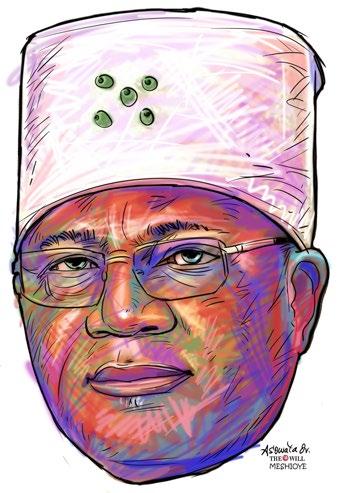
The Manufacturing Association of Nigeria (MAN) has revealed a disturbing trend within its sector arising from the current economic crisis.
The group, in a recent report said about 767 manufacturing companies shut down operations while 335 experienced distress in 2023 leading to unsold goods of about N350 billion.
It attributed the development to various economic difficulties, including exchange rate volatility, rising inflation, and a general worsening of the investment climate.
These adversities have taken a toll on the manufacturing sector, significantly impacting its performance and sustainability.

Many of the firms recorded huge losses in their 2023 financial statements, resulting in lean assets sizes, compared to the previous year.
Nigerian Breweries recorded N106 billion loss; Nestle Nigeria posted N104 billion loss, Dangote Sugar suffered N73.8 billion loss while Cadbury Nigeria incurred N27.6 billion loss - all in the 2023 financial year.
MAN’s revelations came alongside its criticism of the Federal Government’s earlier introduced Expatriate Employment Levy (EEL), which the association argued contradicts the objectives laid out in President Bola Tinubu’s Renewed Hope Agenda and the core principles of his Fiscal Policy and Tax Reform initiative. The policy has just been suspended.
The imposition of this levy was seen as a counterproductive measure that could exacerbate the already challenging conditions for manufacturers in Nigeria.
Continues on page 33
EDITOR Sam DialaNASENI to Raise Number of Female Engineers in Nigeria Over Next 5 Years
Agency to Introduce E-vehicles in Nigeria’s North-East
 BY SAM DIALA
BY SAM DIALA
Going by available data, over N5 trillion intervention projects birthed by the Central Bank of Nigeria (CBN), through its development finance department, are now in limbo.
This followed the policy shift by the new leadership of the bank to “slow down” on the 47-year-old scheme introduced in 1977.
During his screening by the Senate last September, the new CBN Governor, Dr Olayemi Cardoso, said the apex bank under his watch would play down on its role in the development finance space. He later reiterated the decision to restrategise the development finance roles of the institution at the Bankers’ Committee meeting in Lagos in November.
The development was received with mixed feelings among the stakeholders and other members of the public. While some viewed the policy from the prism of a move towards “sanitizing the system”, others urged the CBN to tread ‘softly’ considering the strategic role of the bank’s development finance in driving the nation’s economic development.
Intervention philosophy
The CBN had explained that its intervention in the critical sectors of the economy aimed to enhance the transmission mechanism of monetary policy actions, as well as facilitate the development of financial markets through the creation of easy access to credit for investment and production.
It maintained that the idea was to indirectly influence cost of production for firms and affect prices positively by improving the flow of credit.
The apex bank also said that due to the limited fiscal space as a result of the significant drop in government revenue, it had to intervene with development finance tools and some monetary policy innovations to aid recovery without jeopardising price stability.
Success stories
The bank effectively played this role not too long ago when it introduced some intervention programmes in the wake of the outbreak of the COVID-19 pandemic. This helped to mitigate the impact on businesses and households which helped to sustain the economy and quickened the exit from recession in 2021. .
Over the years, the CBN has, through its interventions, improved access
to affordable and long-term finance to the real sector, de-risked these priority sectors by incentivising banks and other financial institutions to lend, and stimulated investments in the productive base of the economy. Evidently, the interventions of the bank are targeted at priority sectors of the economy that have the potential to transform the productive base of the economy to facilitate growth, stimulate sustainable jobs, expand the non-oil export basket to enhance the foreign exchange earning capability of the economy, and facilitate financial inclusion.
The numbers
The emphasis of these interventions is to stimulate the flow of affordable credit to targeted priority sectors with high growth impact and employment elastic potential, such as agriculture, manufacturing, energy/infrastructure, healthcare, MSMEs and exports.
The intervention funds include the Agricultural Credit Guarantee Scheme (ACGS); Nigeria Incentive-Based Risk Sharing System for Agricultural Lending (NIRSAL) and the Commercial Agriculture Credit Scheme (CACS).
Others are the N220 billion Micro, Small and Medium Enterprises (MSME) Fund; the Anchor Borrowers’ Programme, and the Small Medium Enterprise Credit Guarantee Scheme (SMECGS), among others.
In a bid to ensure that businesses across all sectors of the economy sustained their operations after the COVID-19 pandemic, CBN introduced several loan opportunities under its intervention arrangement in favour of agriculture.
These include the AGSMEIS Loan for SMEs And Agricultural Businesses Without Collateral; Anchor Borrowers Programme (ABP) Intervention For Agriculture; Accelerated Agricultural Development Scheme (AADS) Loan; MSMEDF Loan – Micro, Small and Medium Enterprises Development Fund.
The famed Anchor Borrowers’ Programme (ABP) was aimed to bring unusual reform to Nigeria’s agricultural sector. Under the scheme,

Experts have observed that the CBN’s involvement in development financing is driven by the need to address market failures resulting from the apathy of banks to lend to critical sectors/segments of the economy due to perceived risks
the bank granted N756.51 billion to 3,734,938 small holder farmers cultivating 4.6 million hectares of land, of which N120.24 billion was extended for the 2021 Wet Season to 627,051 farmers for 847,484 hectares of land.
There have been severe criticisms against the implementation of the ABP which reportedly saw the farmers, the millers, the off-takers and others actively involved in the value chain advancement, leading to the creation of over 3.5 million jobs. Some stakeholders have urged the CBN to review the scheme and address all the identified obstacles to its effective implementation.
“If there are issues that negate the purpose of the scheme, let the government identify and address them, including finding a way to recover outstanding facilities even if it means restructuring the loans,” said Umar Abdulahi, an Abuja-based agribusiness operator.
The CBN also created the Agribusiness/Small and Medium Enterprise Investment Scheme (AGSMEIS), and the Targeted Credit Facility (TCF) through which the sum of N121.57 billion was disbursed to 32,617 beneficiaries; while N318.17 billion was released to 679,422 beneficiaries, comprising 572,189 households and 107,233 Small and Medium Enterprises (SMEs) respectively.
Backward integration
Some of the beneficiaries of the scheme are involved in the strategic backward integration scheme -- a practice where companies are encouraged to cultivate their own raw materials by purchasing from their suppliers or establishing farms to grow produce for their factories. Though conceived in the 80’s, the policy gained momentum in the country following the crash in crude oil prices which started in the fourth quarter of 2014
The government put the scheme in place to save foreign exchange, create jobs, boost domestic productivity and grow the GDP. On a positive note, the initiative was well received in the real sector.
The consumer goods firms keyed into the scheme and have since taken giant strides in its implementation. This is to the benefit of the small and medium enterprises (SME), especially those engaged in the agriculture value chain and transport.
The CBN policy shift on its development finance activities will pave way for the Bank of Industry (BOI) and the Development Bank of Nigeria (DBN) to expand their support for the micro, small and medium enterprises (MSMEs) towards advancing the nation’s economic development as the apex bank has hinted.
Experts have observed that the CBN’s involvement in development financing is driven by the need to address market failures resulting from the apathy of banks to lend to critical sectors/segments of the economy due to perceived risks.
With the beneficiary businesses now appearing stranded, it is important for the CBN to mobilise the necessary tools towards refocusing its development finance goals through the development finance institutions. This is to salvage the crumbling informal sector under the current economic crisis as majority of them fall under the MSME category.
Introducing the Expatriate Employment Levy had sparked considerable concern among industry stakeholders. According to MAN, the levy, which charges $10,000 for staff and $15,000 for directors, represents a drastic increase from the previous $2,000 fee for the Combined Expatriate Residence Permit and Alien Card.
The new levy was criticised for potentially increasing the cost of doing business in Nigeria, particularly for manufacturers grappling with numerous challenges.
The manufacturing sector, as reported by MAN, has seen a decline in capacity utilisation to 56%, compounded by rising interest rates and a scarcity of foreign exchange needed for importing essential raw materials and machinery.
The sector also faces an inventory of unsold finished products valued at N350 billion, alongside a real growth drop to 2.4%.
“The imposition of EEL poses a potential impact on the manufacturing sector and the economy at large. This will in turn mark an unwarranted and unprecedented addition to the cost of doing business in Nigeria, especially to manufacturers.
“The manufacturing sector is already beset with multidimensional challenges. In 2023, 335 manufacturing companies became distressed and 767 shut down.
“The capacity utilization in the sector has declined to 56%; interest rate is effectively above 30%; foreign exchange to import raw materials and production machine inventory of unsold finished products has increased to N350 billion and the real growth has dropped to 2.4%. Expatriates in Nigeria currently pay more than $2000 for CERPAC. The sector cannot afford another disincentive to increased investment and portfolio expansion,” the statement read.
MAN had highlighted the potential impact of the now suspended expatriate employment levy on Nigeria’s international trade agreements, such as the African Continental Free Trade Area agreement, which aims to enhance the free movement of skilled labour across the continent.
The association feared that the levy could prompt retaliatory measures against Nigerians working abroad, hinder regional integration efforts, and tarnish Nigeria’s image on the global stage.
It was in light of these concerns that MAN called on President Tinubu to reconsider the implementation of the Expatriate Employment Levy, warning of its negative consequences on the manufacturing sector and the broader economy. The association urged discontinuing the levy to further distress within the sector and align with the broader goals of economic growth and development in Nigeria.
With the huge losses recorded by major manufacturing companies, and the closure of a large number of businesses in the sector, it is obvious that the government will equally experience a huge drop in tax revenue compared with the previous year.
Some firms will not be able to declare dividends this year while others will manage to pay a little, thereby putting the shareholders’ expectations in the reverse.
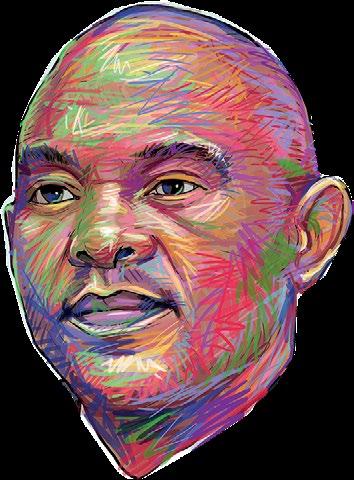
Transcorp Power PLC, the power generation spinoff of Transnational Corporation of Nigeria (Transcorp), advanced 10 per cent in market value on its debut in Lagos last week.
The company’s shares closed at a cumulative value of N1.98 trillion against N1.8 trillion at the beginning of trade.
The power utility listed 7.5 billion shares at N250 per unit, which were admitted to the Nigerian Stock Exchange (NGX)’s main board, the listing segment for companies with high standards of disclosure and corporate governance.
A total of 40 million shares exchanged hands on the first day of trade for Transcorp Power, whose shares were quoted by introduction, which means the shares listed are those of the existing shareholders of the company.
“We have first met all the listing requirements 100 per cent. But in addition to that, as people who believe in democratising lock, who believe in democratising wealth, and prosperity for everyone, we will make some more shares available from tomorrow,” said Tony Elumelu, Transcorp’s chairman at the Facts Behind the Figures presentation in Lagos.
The company is the second under the Transcorp conglomerate to be carved out of the parent and listed as a separate entity, its listing coming nine years after the hospitality arm of the group, Transcorp Hotels, gained public company status in Lagos and was admitted to the NGX.
Transcorp Power’s listing comes seventeen months after that of rival Geregu Power, which was listed at N250 billion but is currently worth N2.5 trillion
in market capitalisation.
“We are the only successor Genco (power generation company) post-privatisation that has been fully discharged from postprivatisation monitoring by the Federal Government,” CEO Peter Ikenga said.
“We were inducted into the West African power pool in 2018 and what that means is that it also opened the door for us to do cross-border electricity trading. Today, 18 per cent of our income comes from sales of power across the border.”
Transcorp Power is targeting revenue in excess of N500 billion by 2031, its CEO said.
The company runs the Ughelli Power Plant in Delta State, which has an installed capacity of 972 MW, while the total installed capacity of the firm is 2000 MW.

The Executive Vice Chairman/Chief Executive Officer (EVC/CEO) of the National Agency for Science and Engineering Infrastructure (NASENI), Mr. Khalil Suleiman Halilu said the Agency would double the number of female Engineers in Nigeria over the next five years.
The EVC/CEO made this pledge Friday at NASENI Headquarters, Abuja during the official launch of “Developing Engineering Leaders Through Her” (DELT-Her), an event which also coincided with the global commemoration of International Women’s Day (IWD).
Delt-Her, according to Mr. Halilu is an initiative, a subset of Delta-2 programme, floated to close the gender gap in engineering practice in the country, inspire next generation of female engineers, provide financing support for new ideas and projects, translating them into viable businesses, and ultimately to strengthen the entire engineering ecosystem.
Mr. Halilu said, “DELT-Her is what I call an opportunity platform”, through which girls and young women can pitch and present their exciting and groundbreaking engineering ideas, for funding by NASENI, through our collaboration with the Presidential Implementation Committee on Technology Transfer (PICTT).
Speaking further on the project, he said, DELT-Her “seeks to correct the in balance in practice and enterprise development, by focusing attention and funding on young women, and very importantly, creating and cultivating public awareness around the need to train and mentor more women into the engineering professions.
According to him, what this should ideally mean is that women should make up half of all professional spaces in the country but, for now, this is far from reality. “The global average for female representation in engineering is 28 per cent. In Nigeria, it is only five percent, only one in 20 Nigerian engineers is a woman. This awareness component of the work is one that we will take very seriously, working through schools, and storytelling campaigns.
“We intend to, through DELT-HER, double the number of female engineers in Nigeria over the next five years. This will mean working extensively at the level of secondary education, which is where young girls make the vital decisions regarding choice of professional field”, he affirmed.
Earlier in his welcome address, Chairman, PICTT, Dr. Mohammed Dahiru stated that, “The Committee, through continuous support of NASENI is determined to fund innovative and commercially viable ideas in engineering and technology-oriented proposals by women. Therefore, today’s launch of call for proposals from young women marks the beginning of a chain of events which are expected to lead to engineering start-up companies owned and run by women.”
In her key note address, the President of the Nigerian Society of Engineers (NSE), Engr. Margaret Aina Oguntala said DELT-HER initiative sought to address the challenges of practice by the female gender, and to unlock the full potentials of women in engineering.
Other goodwill messages at the event included the chairman, Senate Committee on NASENI, Senator Ezenwa Francis Onyewuchi who pledged his support for Women in engineering and science sector to ensure that they are given their rightful position in society.
Others who gave goodwill messages include the Senior Special Assistant to President Bola Ahmed Tinubu on Citizenship and Leadership, Rinsola Abiola and Chairman, Association of Professional Women Engineers of Nigeria (APWEN), Engr. Mrs. Katume Giwa. The event was graced by students from Government Secondary School, Dasara, Kuje, Abuja.
The North East Development Commission (NEDC) has announced plans to introduce electric vehicles to ease challenges associated with intra and inter-state transportation in the region.
The chairperson of the reconstituted governing board of NEDC, Paul Tarfa, a retired army general, made the announcement shortly after he met with members of the board in Abuja.
The News Agency of Nigeria (NAN) reports that the meeting was the first after the board’s inauguration by Vice President Kashim Shettima in August.
Mr Tarfa said the e-mobility project aims to address transportation challenges faced bypeople in the region.
”We plan to embark on (e-mobility projects) that is electric vehicles to ease the challenges of transportation faced by people in the North East,” Mr Tarfa said. He also said the purpose of the meeting was to inform Nigerians of the efforts of the commission so far.
”Some of the key issues we discussed during the meeting was to ensure the completion of all the ongoing projects.
”Especially the six major road projects that are ongoing across Taraba, Gombe, Bauchi, Adamawa, Yobe and Borno States and we hope to complete them by Dec. 2024.
Mr Tarfa also informed the gathering of the board’s commitment to key into the renewed hope agenda of President Bola Tinubu’s administration in keeping with his desire for the vulnerable Nigerians.
He, therefore, assured Nigerians of their determination to complete all the ongoing projects embarked upon by the commission.
Earlier, the Managing Director of the Commission, Mohammed Alkali, said the board had already approved the use of electric vehicles for inter-state mobility within the region.
Mr Alkali further explained that the use of such vehicles would serve as a costcutting measure against petrol-consuming vehicles.
The NEDC MD also announced plans to release 300,000 bags of rice for immediate distribution to support vulnerable communities in the region.
According to him, this is part of the commission’s efforts to support families in need due to the current increase in food prices.
”Some of the items we earmarked for distribution include Spaghetti, vegetable oil, Sugar, branded mats and blankets, male and female clothes as well as children wear,” Mr Alkali said.







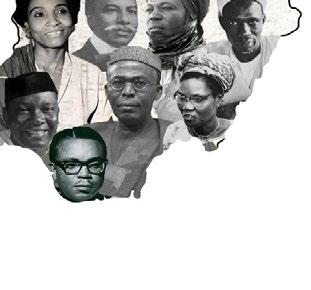









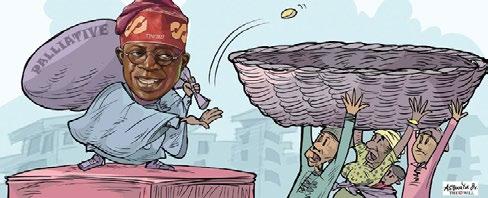




EFFECTIVE APRIL 1, 2024




























Photo Editor: Peace Udugba [08033050729]
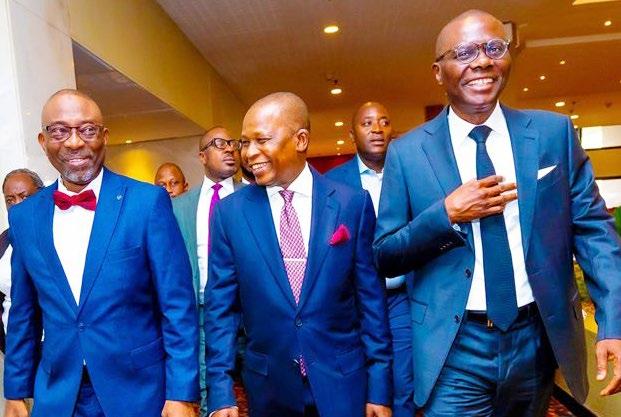
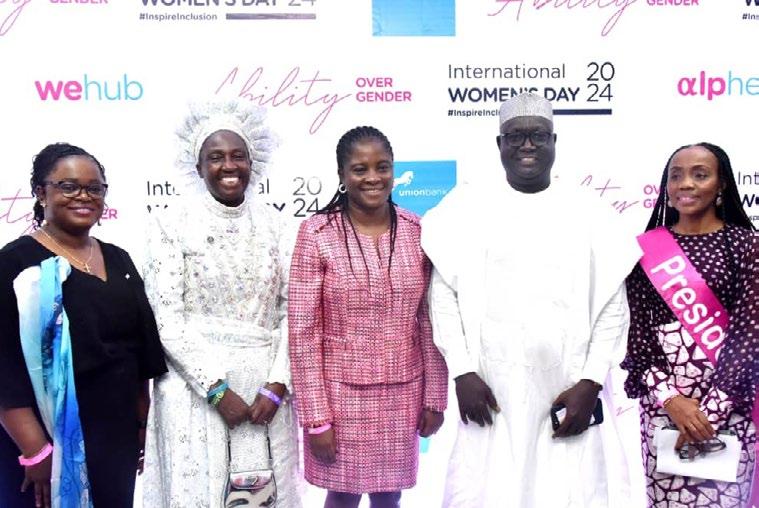


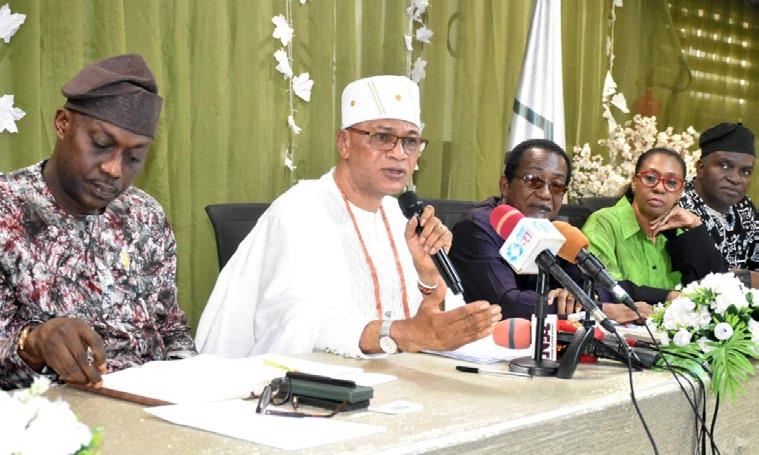





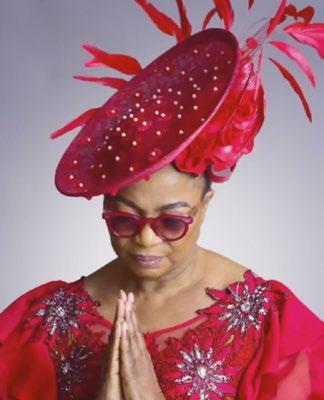


As the world celebrates International Women's Day this week, Omowunmi Fakoya, Head, Junior Chamber International, Ikeja Chapter, speaks with IVORY UKONU about her vision for the branch and what it means to be the 40th president of the chapter as it marks a landmark year. Excerpts:
What is your role as the President of Junior Chamber International Ikeja?
As the President of Junior Chamber International. JCI, Ikeja, my primary responsibility is to guide the organisation towards fulfilling its vision. JCI is an organisation that is dedicated to offering young individuals the opportunity to address and solve societal challenges. My role involves leadership, strategic planning and fostering an environment where members can innovate and implement solutions for the betterment of our community.
Since joining JCI Ikeja in 2018, I have been endowed with the knowledge and capability to assume various leadership roles within the organisation, ultimately paving my path to become President. In this capacity as President of JCI Ikeja, my duties extend beyond mere administration; I am tasked with providing visionary leadership and mentorship to our members, shaping the direction, impact, and culture of our local organisation. This role demands unwavering dedication, strategic insight, and a commitment to fostering the development of young leaders and enhancing community well-being.
When did you assume the presidency, and what is the duration of your term?
Leadership roles within JCI are designed to be transient, meaning that all positions within the organisation are held for a one-year term. I officially assumed the position of president on January 1, 2024 and my tenure will conclude on December 31, 2024, at which point I will pass on the baton to my successor.
JCI is 40 this year. Which of the organisation’s achievements are being celebrated?
This year marks the 40th anniversary of JCI Ikeja, a milestone that signifies our longstanding commitment to making positive impact and assisting individuals in various capacities. It is noteworthy that JCI Ikeja initiated the environmental sanitation movement, a pioneering effort that was subsequently adopted by the federal military government of the time. Additionally, our tree planting initiative has been embraced by the Lagos State Government. As we celebrate this significant anniversary, we also honour our distinguished leaders who have shaped our journey: Tunde Ojo, the Charter President; Foluso Phillips; Babatunde Ogala (SAN); Muyiwa Moyela; Jokotade Odebunmi; and (Dr.) Kunbi Wuraola. Their contributions have been instrumental to our organisation's growth and the positive changes we have affected in our community.
How would you evaluate the growth of the Ikeja chapter now, compared to the past 10 or 20 years?
Over the past few years, our organisation has witnessed substantial growth across the various facets of its operations. We assess our growth through multiple lenses, including an increase in membership strength and the advancement of our members; careers and business ventures. This multifaceted growth reflects our commitment to not only expanding our organisation but also enriching the personal and professional lives of our members.
What do you consider the most impactful contribution to humanity made by the branch you head till date?
Each of our projects has made a significant impact on human lives, as we ensure that every initiative fulfills its intended purpose. Among these, our Commit2QualityHealth project stands out for providing free healthcare services to over 2,000 individuals. This initiative exemplifies our dedication to improving community health and well-being, demonstrating the profound effect of our commitment to societal betterment.
Where do you envision the Ikeja branch in the next five years?
Over the next five years, we aim to deepen our commitment to providing development opportunities that empower young people to effect positive change. We plan to enhance our members' capabilities to become leaders in their respective careers and business fields. Additionally, we aspire to
forge partnerships with both local and international organisations to address community challenges and to offer young individuals' various leadership training opportunities.
Since assuming the presidency of the branch, what steps have you taken to elevate the branch to greater heights?
We have strengthened our mentorship programmes, providing young professionals and entrepreneurs with the guidance and resources needed to excel in their careers and business endeavors.
This has not only enhanced individual career growth but also contributed to the economic development of our community.
We have also established and solidified partnerships with different organisations like the Lagos Business School and others, which has significantly contributed to our strategic positioning and growth. These collaborations have enabled us to broaden our impact, reaching more individuals and communities with our projects and initiatives.
These partnerships have also opened up new avenues for our members to engage in global networks, fostering cross-cultural exchanges and learning. These achievements, among others, reflect our dedication to creating positive change and embody the spirit and values of JCI Ikeja. They will be proudly celebrated as milestones in our ongoing journey to empower young people and contribute to the betterment of society.
What challenges have you encountered since becoming president?
The challenges we've encountered are numerous, but it is these very challenges that have driven us to achieve noteworthy successes in the first quarter of the year. The truth is, the more obstacles we overcome with our limited resources, the more resilient and effective we become in our mission.
How would you describe JCI layman?


and unlearning, enabling members to evolve into better versions of themselves and make meaningful contributions to society.
Why did you join JCI, what was the attraction?
As the President of JCI Ikeja, my journey to joining the organisation was motivated by a deep-seated desire to make a tangible difference in my community and to develop myself both personally and professionally. The attraction to JCI stemmed from its unique position as a global network of young active citizens who are committed to creating positive change. What truly drew me in was the organisation's emphasis on providing development opportunities that empower young people.
JCI, or Junior Chamber International, is a worldwide organisation dedicated to empowering young adults, specifically those aged 18 to 40, to create positive change in their communities and various aspects of life. It offers a unique platform for young individuals everywhere to not only benefit their personal development but also positively impact their communities, businesses, and nations.
Joining JCI, regardless of location, provides members with unparalleled opportunities for learning, growth and development. Through its programmes and activities, JCI facilitates a process of learning, relearning,
JCI offered a platform where I could not only grow my leadership skills but also actively engage in community projects that address local challenges. The prospect of working alongside like-minded individuals from diverse backgrounds to drive societal progress was incredibly appealing.
In essence, my attraction to JCI was rooted in the organisation's mission to provide young people with the tools and platform to effect positive change, both locally and globally. It offered a unique blend of personal development, community service, and global understanding that resonated with my aspirations and values.

 Fakoya
Fakoya
Fakoya
Fakoya
How has joining JCI impacted on you as a young person?
Joining JCI has profoundly impacted me as a young person by enhancing my leadership skills, broadening my network, and deepening my understanding of societal issues. It has provided me with a platform to contribute meaningfully to my community while fostering personal growth and development. Through JCI, I've learned the importance of active citizenship and the power of collective action in driving positive change.
What are the requirements for becoming a member?
The requirements for becoming a member of JCI include being between the ages of 18 and 40, possessing a commitment to personal growth and community service, and sharing the values of the organisation. Prospective members should be eager to develop their leadership skills, contribute to their communities, and be open to embracing new experiences and challenges.
So JCI is a youth organisation.
What is its role in national youth development?
As a youth organisation, JCI plays a crucial role in national youth development by empowering young people with the skills and opportunities needed to lead change. Through various projects, programs, and initiatives, JCI enables young individuals to address local and global challenges, thereby fostering a generation of informed, responsible, and active citizens who are equipped to contribute to the socioeconomic development of their nations.
AvisittotheSpecialAdvisertotheLagosState GovernoronSustainableDevelopmentGoals,Dr. Oreoluwa Finnih to foster collaborations.
What was growing up like for you and how did it impact on you wanting to give back to society?
Growing up in a community-minded environment instilled in me the value of giving back to society from an early age. Witnessing the challenges faced by those around me and seeing the impact of collective efforts to address these issues, fueled my desire to contribute to making a difference in the lives of other people. This foundational experience has been a driving force in my commitment to service and leadership through JCI.

What would you say must have significantly shaped you to be who you are today?
What has significantly shaped me into who I am today is a combination of my upbringing, education and the various challenges and opportunities I've encountered. My experiences have taught me resilience, empathy and the importance of continuous learning and improvement. My involvement in JCI has also played a crucial role in shaping my leadership abilities and my perspective on social responsibility.
What are some of the things you do as a data analyst?
As a data analyst, I specialise in interpreting complex data to provide actionable insights that inform decision-making processes. This involves collecting, processing, and analyzing data sets to identify trends, patterns, and correlations. My role also includes creating visual representations of data, such as charts and graphs, to make the findings accessible to stakeholders.
Do you think that being a data analyst is one of the fastest rising careers that is set to dominate the world in the nearest future?
I firmly believe that data analysis is among the fastest-growing careers set to dominate the tech industry in the near future. The exponential increase in data generation and the critical need for data-driven decision-making across industries have heightened the demand for skilled data analysts. The ability to interpret and leverage data effectively is becoming increasingly crucial for competitive advantage, innovation and efficiency, underscoring the importance and potential of this career path in the tech landscape.
Why do you think the tech industry is so important in our everyday life now?
The tech industry plays a crucial role in our everyday lives now because it drives innovation, enhances efficiency and facilitates connectivity. Technology has revolutionized the way we communicate, work, and solve problems, making it integral to personal and professional activities. From healthcare to education, finance, and beyond, technology enables us to address challenges, access information and improve the quality of life globally. Its importance lies in its capacity to continuously evolve and adapt, providing solutions that meet the ever-changing needs of society.
You studied microbiology in school. Why did you dump it for a career as a data analyst?
While I studied microbiology in school, my career path shifted towards data analysis due to my interest in leveraging technology to make informed decisions. The transition was driven by a recognition of the growing importance of data in understanding and solving complex problems. Although my background in microbiology provided a strong foundation in research and analytical skills, my passion for technology and data analytics led me to pursue a career where I could combine these interests to make a broader impact.
“
As the President of JCI Ikeja, my journey to joining the organisation was motivated by a deep-seated desire to make a tangible difference in my community and to develop myself both personally and professionally. The attraction to JCI stemmed from its unique position as a global network of young active citizens who are committed to creating positive change. What truly drew me in was the organisation's emphasis on providing development opportunities that empower young people. JCI offered a platform where I could not only grow my leadership skills but also actively engage in community projects that address local challenges. It also offered a unique blend of personal development, community service, and global understanding that resonated with my aspirations and values
Do you hope to dust up your microbiology certificate some day?
While my current focus is on data analysis, I value the knowledge and skills gained from my microbiology studies. It remains a part of my academic and professional background that I am proud of. While there are no immediate plans to return to the field of microbiology, I am open to exploring opportunities that may allow me to utilize my expertise in microbiology alongside my skills in data analysis, particularly in areas where both fields intersect, such as biotechnology or public health.
You are also a certified Health, Safety and Environment specialist. What is it all about and in what ways does it come handy with what you do?
Being a certified Health, Safety, and Environment (HSE) specialist involves understanding and implementing practices that ensure the safety and wellbeing of individuals and the environment in the workplace and beyond. This certification has equipped me with the knowledge to identify potential hazards, conduct risk assessments, and develop strategies to mitigate risks. It comes in handy with my current role by fostering a culture of safety and environmental responsibility within JCI Ikeja's projects and initiatives, ensuring that our activities not only benefit the community but also adhere to safety and environmental standards.
Beyond JCI, are you thinking of playing on the national scene in a bigger capacity, say elective position?
I am open to exploring opportunities to serve in a larger capacity on the national scene, including potentially an elective position. My experience with JCI Ikeja has instilled in me a deep commitment to public service and community development, and if an opportunity arises to extend this impact through a national platform, I will consider it an honour to contribute to our organisation's progress in a more significant role.
How do you unwind when you aren't working?
I unwind by spending time with family and friends, engaging in physical activities like jogging or playing football, and pursuing hobbies such as reading and traveling. These activities provide a necessary balance, allowing me to recharge and maintain well-being outside of my professional and volunteer commitments.




Following a massive restructuring, 'The Guardian' Newspapers has appointed Toke Ibru as the Chief Executive Officer/Managing Director of the 40-year-old news medium. He will be taking over from Martins Oloja who will be stepping down in retirement at the end of this month. Toke is the son of late Alex Ibru, the founder of the newspaper and Maiden Ibru, who remains the publisher of the newspaper.
Until his latest appointment, Toke was an Executive Director involved in the digital transformation of the newspaper. He was also a member of 'The Guardian' Editorial Board. He is expected to deploy his experience in the corporate industry to enrich the brand equity of the newspaper.
A graduate of History from the University of Exeter, United Kingdom, and an alumni member of IESE Business School in Spain, where he did his Executive Education in Media and Entertainment, Toke has over 15 years of commercial experience in publishing and seven years in hospitality management. In 2003, he established Lexan Media Services Ltd, which provides consulting services to global brands entering the Nigerian market and in 2005 he introduced Time Out magazine to the country, which published Time Out Lagos and Time Out Abuja under the license of the ‘Time Out Group’, UK.
He has been a Commercial representative of the Financial Times, UK since 2010, just as the platform published several annual special reports on Nigeria, including FT Nigeria Oil and Gas and FT Investing in Nigeria.
Alex-Ibru is currently a director on the boards of Ikeja Hotels Plc, Tourist Company of Nigeria Plc and is the Chairman of Charles Hampton, a subsidiary of Ikeja Hotels and in equity partnership with Lagos State Government’s Ibile Holdings. He is the Publisher of 'Marie Claire' Nigeria under licence from the Marie
Continued from page 38
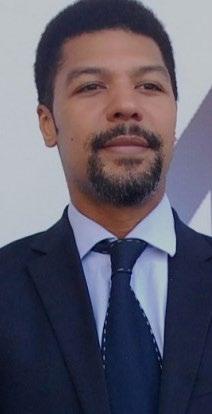
Claire International media group in France. He also sits on the advisory boards of WARIF International, Board of Governors Member of Trinity Foundation (Ibru Ecumenical Centre) and the Nigerian-Belgium Chamber of Commerce.

RContinued from page 38
who visited the former two-time governor of Rivers State to felicitate with him was his friend and close confidant, the governor of Abia State, Alex Otti; former senator Dino Melaye; former Imo State governor, Emeka Ihedioha; Attorney General of the Federation and Minister of Justice, Lateef Fagbemi; Rivers State governorship candidate, Tonye Cole; Ifeanyi Ararume; Senator Ali Ndume; Nasiru Danu etc. Before his call to the bar, not a few assumed that Amaechi was going to end up becoming an active player in the Lord’s vineyard going by his activities. First he tested the waters in 2021 with the release of a gospel music video, 'Psalm 33: Blessed
The People The Lord Has Chosen As His Heritage,' which coincided with his 56th birthday celebrations. The single was also mixed, mastered and produced by Obliblo Music Production. Then in 2023, he released another single, 'Responsorial Psalm' with an accompanying video featuring his wife, Judith alongside the Obliblo Music Crew. The single which was produced, mixed and mastered by Obliblo Music Production was released to coincide with his 58th birthday celebration. But with his recent call to the bar, he just may jettison his obsession with gospel single and fully embrace the legal profession. Time will tell.

devastating marital crisis. According to very reliable sources close to THEWILL, the mother of four who is also Nigeria's wealthiest woman, has allegedly separated from her husband, Modupe. The businessman allegedly, no longer spends cold nights in the arms of his wife on their matrimonial bed in their highbrow Ikoyi, Lagos home. The couple were alleged to have been having frequent squabbles which allegedly necessitated the wealthy woman to demand utmost privacy in her home. He was forced to seek accommodation elsewhere. He allegedly lives alone within the same Ikoyi neighbourhood. Calls and text messages to him seeking clarification went unanswered. Sources reveal that it has not all been smooth sailing for the couple these past few years and they have allegedly been forced to put up a united front because of their status in the society. This latest development is

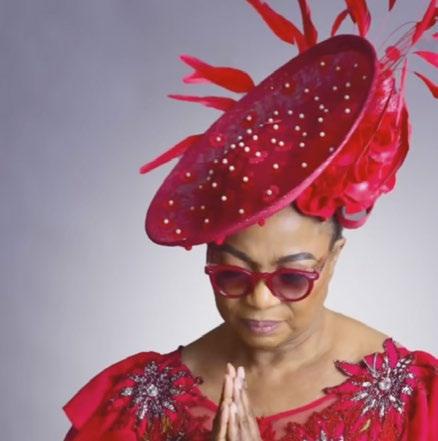
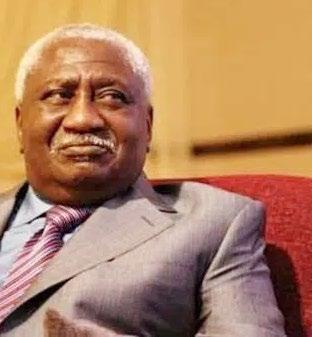
coming barely five months after THEWILL exclusively reported that the former fashion designer and founder of FAMFA Oil Limited, an Oil and gas exploration business has allegedly been battling some health challenges particularly with her eyes. Family and friends tried as much as they could to put a lid on it just as they tried to with her current marital status. Her health challenge became more pronounced when one of her sons tied the knot early last year and very unlike the Alakijas of old, there was little or no noise about the marriage ceremony. During the wedding, the media was tactically controlled, photographers were not allowed to take pictures arbitrarily and anyone found doing so was asked to delete them. The planning of the wedding was on a need-to-know basis and guests who got the invitations were well scrutinized.
ecently, Yemisi Edun, the Managing Director/Chief Executive Officer of First City Monument Bank, FCMB, joined the 60s club. To celebrate, she splashed her social media handle with pictures from a photoshoot she had. So pretty and youthful looking was she that she got many gasping and wondering how she could be 60. She quickly followed this up with a lavish birthday party which was held at Harbour Point, Victoria Island, Lagos. She looked stunning in the three outfits she wore during the duration of the party which was characterised by gospel music. The Lagos City Chorale and Abolaji Banjoko, aka Beejay Sax, also serenaded her and her guests with melodious tunes. Some of the VIP guests in attendance were the first lady of Ogun State, Bamidele Abiodun, former governor of the state, Gbenga Daniel etc. A graduate of Chemistry from the University of Ife, Ile-Ife with a Master’s degree in International Accounting and Finance from the University of Liverpool, United Kingdom, Yemisi until her appointment as MD/CEO was the chief financial officer of the bank. She is a fellow of the Institute of Chartered Accountants of Nigeria and a CFA holder. She is also an associate member of the Chartered Institute of Stockbrokers, an Associate Member of the Chartered Institute of Taxation of Nigeria, as well as a member of the Information Systems Audit and Control.

Princess Oladuni Odu, a former Secretary to the Ondo State Government (SSG) in the Rotimi Akeredolu Administration, has jettisoned her ambition to govern the sunshine state.
Oladunni who had earlier made her intentions known, to occupy the number one seat in Ondo State has collapsed her political structure to support the ambition of Senator Jimoh Ibrahim.
The politician has directed her supporters under the
'Iwajowa' Political Group to team up and start working with Ibrahim’s 'Aseyori' Group. She pledged to work and galvanise her group towards ensuring the success of Ibrahim in the April primary. The 71-year-old had earlier boasted of being the most qualified to succeed her late boss having made history as the first SSG in the state not also forgetting her unflinching loyalty to the governor right from the inception of his administration in 2016. She also prided herself on being around the seat of power for 27 years and therefore being more exposed to governance than all the other aspirants. In addition, she believed that the state was long overdue for a woman to govern and that necessitated her throwing her hat into the ring.
While declaring her ambition at that time, she had urged political parties to choose women as the governorship candidate. A former Commissioner for Education in the state between 1995 and 1999, and later Commissioner for Women’s Affairs, she is also the pioneer Chairman of the State Universal Basic Education Board (SUBEB).
Last weekend, Zaynab Otiti Obanor was in the country to give her late father a befitting burial. The venue of the burial reception was in Benin City, Edo State. Zaynab, who likes to address herself with the prefix, Queen or Olori, pulled out all the stops to ensure she made the ceremony a memorable one.
Zaynab, who made the wearing of strictly white ensembles popular when she was the wife of the Ooni of Ife, Oba Enitan Adeyeye Ogunwusi, was dressed to the teeth like she was still a member of a royal household as she played hosts to her guests, some of who flew in from America.
The erstwhile Ife queen, who prefers to keep a low profile since the crash of her marriage to the Ooni, shuttles between Nigeria, Lebanon and the

United Arab Emirate, UAE. She rather prefers to have her philanthropic works speak for her through her Queen Zaynab Foundation. She has since given marriage a third chance to an Arabian and both welcomed a baby girl in 2022 in faraway Qatar.
Last month, fashion designer, Folake Coker clocked 50. Rather than roll out the carpets, she chose to chronicle her life through her now famous business, Tiffany Amber, which also clocked 25 years. While many things can change over time, others remain the same and this aptly describes the resilience and tenacity with which she has remained consistent with the brand whose mantra is timeless elegance.
Ahead of her 50th birthday and 25th anniversary of the Tiffany Amber brand, Folake had unveiled her flagship store in highbrow Ikoyi, Lagos. She was the first African Fashion designer to showcase her collection at the New York Mercedes Fashion Week for two years in a row. She has also sashayed down the world’s most prestigious runways in New York, London, Milan, Paris.
To celebrate the remarkable

milestone, she will be hosting a series of curated events running from March through to December, 2024. So far, she has proven by
this that she is no airhead but an accomplished businesswoman. Although Folake has conquered the fashion and business world, the same cannot be said about the home front. She used to be married to the DirectorGeneral, Nigeria Tourism Development Corporation, NTDC, Folorunsho Coker, also known as Folly Coker, until the marriage broke down irretrievably. The marriage produced three children before it ended. She has however chosen to remain single even though her exhusband has gone through another marriage which also crashed like a pack of badly arranged cards.
Born with a silver spoon to the late wealthy tycoon, Chief Bode Akindele, the Parakoyi of Ibadanland and the owner of Mondondola Group of Companies, an indigenous conglomerate in Nigeria and Fairgate Group, a top International real estate company.
The Aare Musulumi of Yorubaland, Edo and Delta States, Alhaji Dawud Makanjuola Akinola, has succeeded former Governor Abiola Ajimobi as Aare of Ibadanland. The decision was reached on Monday, 26 February, at the Olubadan-in-council meeting.
De-Damak, as the business tycoon is popularly called, will be installed alongside his wife, Alhaja Mariam Olubukola Akinola as Aare and Yeye Aare of Ibadanland, respectively, at a date to be agreed on by the stakeholders. Ibadan has had five Aares, with the first two Oluyedun and Iyanda Adubiaro, ruling the

city. Then came Bishop Alexander Akinyele, whose brother, Olubadan Isaac Babalola Akinyele, was reigning at the time. Being a priest, he first declined the offer to be the Aare, saying he cannot take up a war title. The title was then modified because they felt no one merited the title, Bishop. The modification came and made the title honorary. It made Bishop Akinyele the first Aare of Ibadan in modern days. After Akinyele (1958) came his son in-law, Archdeacon Oladipo Alayande (1977). De-Damak's predecessor as Aare Musulumi of Yorubaland, Alhaji AbdulAzeez Arisekola Alao (2009) and followed by late former governor Abiola Ajimobi (2016).

Victoria Ajayi, a seasoned finance leader with over 15 years of professional experience across local and international organisations has been appointed the Group CEO/Managing Director of TVC Communications, one of largest media companies in Nigeria, owners of TVC News, TVC Entertainment channel, Max FM and Adaba FM. The appointment comes after Andrew Hanlon stepped down as the Group CEO after spending seven years at the media organisation. This makes Victoria the first
woman to hold the highest position in the media organisation since inception. She has served TVC Communications in different capacities, which led to her last role as Deputy Chief Finance Officer, where she assisted the outgoing CEO in navigating the complexities of the industry and driving the company forward. In addition, she is expected to bring her extensive experience in strategic management and wealth of experience in not just finance but leadership capabilities.
A Fellow of ACCA with a Masters in Business Administration from IESE Business School, Victoria comes with a unique blend of expertise in not just finance but leadership capabilities that will drive business growth. She is also a member of the Institute of Directors and The Society for Corporate Governance, Nigeria and has participated in programmes at prestigious institutions such as Cambridge Judge Business School, Harvard Business School, and British Broadcast Corporation, BBC.
Odema Izegbua Akerele, daughter of former Minister of Agriculture, Audu Ogbeh is dead. Odema died last month at the age of 42 and she was laid to rest after a requiem mass at the Church of the Assumption in Asokoro, Abuja. Odema's journey was one marked by ambition, resilience and the relentless pursuit of excellence. As the inaugural Group Head of Human Resources at Rendeavour, she laid the foundation for what would become a career defined by groundbreaking achievements and transformative leadership. Her ascension to the role of Chief Operating Officer (COO) was not just a testament to her prowess but a beacon for aspiring professionals. Odema's vision extended beyond the corporate sphere; she was a pioneer, founding Renwoman with the aim of uplifting and supporting professional women. Her commitment to empowerment and development was further exemplified in her role as COO of Alaro City, a power-generating company that stood as a testament to her innovative spirit and dedication to progress. Odema is survived by her husband, two daughters, parents and sibling.


 Akerele
Ajayi
Coker
Obanor
Akinola
Akerele
Ajayi
Coker
Obanor
Akinola

The Minister of Arts, Culture and Creative Economy, Hannatu Musawa, is on a collision course with industry stakeholders over her plan to create an African version of the American Grammy Awards.
The minister’s plan to collaborate with Grammy organisers for an African version is considered to be misguided and capable of undermining the existing pan-African awards.
Musawa, according to stakeholders, is on the verge of finalising a deal with the Grammy organisers to use its platform for the proposed African Grammy Awards, with Nigeria slated to host the inaugural edition.
She claims that the African version of the Grammy Award when it becomes a reality, will strengthen other award bodies in Africa and also reposition them for a global outlook. But stakeholders in the music industry are concerned that the proposed partnership that aims to create an award event tailored to African music could jeopardise the hard-earned progress and unique cultural identity of African music. They are also concerned that the proposed African Grammy Awards could overshadow existing continental music awards and platforms.
They have therefore urged President Bola Tinubu to halt the proposed partnership between the Nigerian and the American Grammy Awards, which aims to establish an African version of the Grammy Awards.
Industry stakeholders, such as the CEO of Trending Musik, Segun Ogunjimi, are kicking against this move, citing the potential risks it poses to the African music industry’s autonomy and growth trajectory.
Ogunjimi highlighted what he called the remarkable strides made by the players in the Nigeria’s music industry, which has achieved global recognition and acceptance without significant government support and foreign back-up.
He expressed apprehension that the proposed partnership with the Grammy Awards could undermine the industry’s progress of over two decades.
Ogunjimi stressed the need to maintain and promote African music on its own terms, rather than adopting foreign models that may not align with the continent’s cultural heritage and artistic direction.
He said, “This is a clear case of misplaced priority. It’s shocking how the minister could endorse the adoption of an award by an entity that doesn’t understand our culture and heritage. It reeks of neo-colonialism and many of us in the industry see it as a perpetuation of a culture of waste that could harm our economy.
“Why bring in an American entity when we have well-established music award institutions that have tirelessly celebrated and honoured our music icons in an authentic African manner, gaining global acceptance in the process? Instead of supporting homegrown initiatives like the Headies, All African Music Awards, AFRIMA, Soundcity MVP Awards, and Trace Awards, among others, the minister has opted to prioritize foreign involvement. This is unacceptable and should be condemned by all those who love this country and the creative industry.
“There is a movement within the music industry to reject this vexatious initiative by Musawa and we are calling on President Tinubu to prevail on

the minister to bury this idea forthwith.”
Benjamin Iguebor, a veteran music producer and industry consultant, echoed similar sentiments. He emphasised the importance of preserving Africa’s rich musical heritage and cautioned against prioritising international recognition over the continent’s diverse musical traditions.
Iguebor emphasised the significant role that African music awards institutions, such as the All African Music Awards (AFRIMA), Headies, Ghana Music Awards (GMA),Soundcity MVP Awards, Trace Awards and SAMA, South African Music Awards amongst others, play in promoting the continent’s music industry on a global level.
He argued that supporting these locally grown initiatives is crucial in fostering the growth and sustainability of African music, rather than importing foreign elements that will not align with the continent’s unique cultural identity and context.
But Musawa stated that the African Grammy will not in any way jeopardize the progress and unique cultural identity of African music, adding that the organizers of home award shows would not be alienated.
She confirmed that the Federal Government was already in talks with the organisers of Grammy Awards, adding that such conversation was necessary because Nigeria cannot be left behind in view of the giant steps we have made globally in music.
Musawa noted that other countries that lack the musical strength of Nigeria are willing to participate in the Grammy, adding that it will be disappointing for Nigeria not to be part of the conversation with the Grammy.
The minister said, “We’re in talks with the Grammy, obviously, to see how we can work together. The Grammy Africa is coming to Africa anyway. Three African countries, namely Rwanda, Kenya and South Africa, were already in talks with the organisers of the global Grammy Award to explore the possibility of having its version in Africa.
“And it will be a shame for Nigeria not to be among the African countries making that move because none of those countries is making the kind of waves that Nigeria is making. Afro beats is here in Nigeria, even amapiano has been adopted by Nigeria. Nigeria is at the forefront of music, not only in Africa but in the global music scene.
“So, if a brand like the Grammy is coming to Africa and signing with African countries that do not have the musical strength of Nigeria, I think it will really be disappointing for Nigeria not to have that conversation with the Grammy to see how we can be part of it. The conversation with the Grammy is necessary because Nigeria cannot be left behind. But it does not mean that we are going to alienate our own home bred awards. At the same time, we will continue our conversation with the stakeholders to see how we can come up with an award system that will be able to get the kind of structure that will be able to go global.”
Musawa said that her ministry was ready to work with stakeholders of the industry to see how the government can support them to come up with our own Nigerian awards that will be global.
Musawa“I pity the average Nigerian who has plans on building a house. What will they build? God help us.”
That was the damning or rather frightening verdict of Mr. Folawe Adeniran an auto dealer living in Benin Edo state. When he wanted a two-bedroom brick house on a leased land in the ancient city some years ago, the car dealer consulted an engineer who gave him a quotation of N2m for the entire project. Adeniran gave the builder the go-ahead. But just this year, the same engineer gave Adeniran a quotation twice the sum to erect the same building for office use.
“The engineer told me that he had to cut costs to arrive at that figure which excludes workmanship. He cited the cost of cement and sand which is also affecting the price of blocks,” Adeniran lamented to a Vanguard journalist last week. Of course, he didn’t green light the builder this time. Adeniran sought for and got another
alternative – a container which now stands erect in place of what would have been a brick house on the plot of land.
In the face of worsening economic conditions for many Nigerians, there is a corresponding rise in the cost of building materials, cement especially. In times past, a mid-level worker with a modest monthly salary of N50, 000 could attempt laying blocks over a long period of time to fence a quarter plot in some states. Price of cement was affordable then and dealers would have fallen over themselves to deliver them right to your site. These days, dealers are nowhere in sight let alone making promises to use company trucks for personal deliveries.
Walking past two block industries recently somewhere in an outlying community near Agbado in Ogun state, a reporter noticed that the sites were ghost-quiet instead of the earth-shaking vibration from the machines in
operation. Though there were mounds of sharp sand, broken pieces of vibrated blocks here and there, the ubiquitous labourers were absent. Worse still, the blockmaking machines had been removed as if never to be operated again. A machinist worth his pallet know what the problem is. Compared to N3, 500 – N4, 000 a bag of cement sold for months ago, a bag is now sold between N8, 000 and N11, 500, thus putting it out of the reach of the average Nigerian hoping to build his own personal home.
Scary as that may seem, people like Adeniran assure Nigerians to fear not because there are cheaper and faster alternatives to homes built with cement blocks. His office in the Edo state capital is an average-sized container refitted to his specification, a padded interior, external cladding thus making it heat-free. “People used to think building with containers attract lots of heat,” the car dealer told the journalist. To make containers heat-free, owners line the interior with cushions and
“
Originally meant to convey heavy cargoes in ships over long distances on high seas, Nigerians are now finding new uses for those fourcornered iron receptacles, especially following the rising cost of building materials

also clad it externally.
For Adeinran, one of the main benefits of turning to containers as an alternative to block houses is the money it saved him. He spent a million naira less than the engineer’s quotation. “I spent N3m on this container,” he recalled, vowing that “If it were a permanent land, I would still opt for container building.”
Another plus for him is that he can practically lift his mobile container home and move on when his lease on the land ends. It is hard to imagine a tenant doing that with a rented apartment not his own.
As Adeniran tells it, “many business owners whose businesses require building on leased lands and personal lands are now using containers to build. That is what the economy has turned everyone to. Business is not smiling because the economy is not.”
Apparently the economy has not been smiling on Mr. Friday Badmus a trader who also lives in Benin. Perhaps because of the rising cost of building materials, his landlord informed him that he will be increasing his rent of N600, 000 to N800, 000 for a two-bedroom flat. Badmus was not amused about the rent increment last November.
“I was so worried because the place I have land was not well occupied by people yet and was thinking about how to raise N800, 000 and still foot my family bills with low sales in business,” Badmus rued. Besides, he didn’t want to borrow money to pay the rent but to manage what he had. Already, there was a parcel of land somewhere. Good helpmate that she is, Badmus’s wife muted the idea of building a container apartment of a room and parlour on the quarter plot of land. The trader didn’t need any more convincing.
“She brought her savings and I added mine and with support from family and friends we had our container building,” the new home owner admitted. “You won’t even know it is built with a container if I don’t spill.”
Originally meant to convey heavy cargoes in ships over long distances on high seas, Nigerians are now finding new uses for those four-cornered iron receptacles, especially following the rising cost of building materials. Not exactly new as homes or offices, containers have been in use in most other parts of the world where they are fashioned into fancy, portable live-in places or temporary offices.
For one, container cribs are cheap to build. A construction engineer Blessing George estimates that construction costs range from N100, 000 – N150, 000 per square meter, depending on final specification and finishing. “These containers are used for transportation and can be converted to comfortable apartments with standard interior finishes and designs. The area where cement is required is the concrete foundation to place the containers. These container houses are mostly used for commercial purposes and personal apartments. The high price of cement which is making people seek for other building alternatives is pushing many to opt for the container houses.”
Nigerian engineers have been canvasing for container houses as cheaper and faster alternatives to regular homes built with cement blocks. In a 2014 interview with Yinka Kolawole of Vanguard, for instance, Managing Partners of THN (Tempohousing Nigeria) Dele Ijaiya-Oladipo and David Aderounmu made a plea why potential home owners should avail themselves of the benefits of container housing.
Apart from its durability built to the specification of International Shipping Organisation (ISO) standards, container homes are by far cheaper and faster alternatives. At the time of the interview, cost per square metre of such structures was N45, 000 and N65, 000. But “it really depends on individual personal preferences for certain things – the finishing, external cladding. For an average two-bedroom, we are looking at about N2.5 million, all in all, that is, you are moving in with only your luggage and movable furniture. And we can deliver
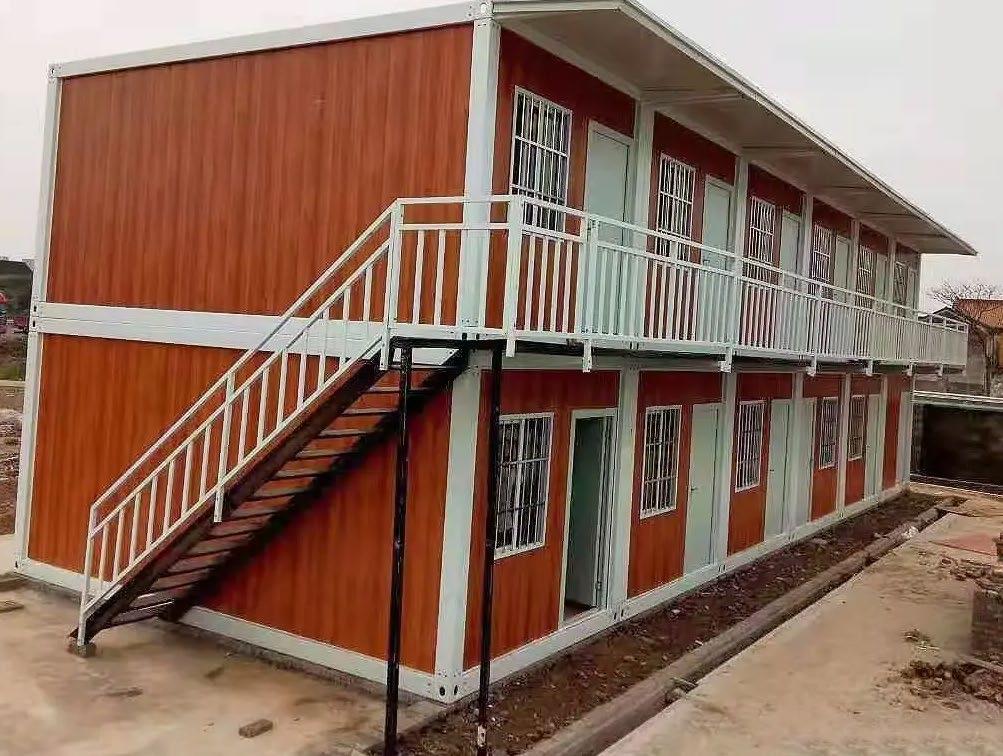
“many business owners whose businesses require building on leased lands and personal lands are now using containers to build. That is what the economy has turned everyone to
in 6 to 7 days.”
Moreover, because of their sturdy structure, container homes easily “withstand high and extreme weather conditions.” Used only as a building requirement within accommodation area, container homes “can last forever. And it’s like any other building, you have to maintain it. In our own fabrications, we don’t usually expose the metal container. Internally, we have wood loggings, plywood, insulations, and depending on your choice, we have plasterboards or PVC.”
Even so, according to Ijaiya-Oladipo and Aderounmu, there are hurdles, one of them being that people easily dismiss container buildings as "'after all, this is a container.’ What we intend to do going forward is to educate people and let them see what the so-called container actually looks and feels like, and once you enter you realise that it even looks better than a normal
building. It’s easier to control, not using cement, no cracks and all that. It’s just about education and doing things that people can walk in and see. We’ve done that with our pilot project and people that have gone inside have been amazed at what can be done with a shipping container. As to the notion that if you have not built with bricks you have not built a proper house, that is a Nigerian or African mentality.”
To be sure, this is not the first time Nigerians will be rooting for and making good use of container housing. Sometime in 2021, Lagos State Government under Governor Babajide Sanwo-Olu unveiled digitalised container classrooms at a government-owned model college in Agege council.
In the words of the Chief Press Secretary to Sanwo-Olu, Gboyega Akosile, “the governor inaugurated a nineclassroom block built to replace decrepit concrete structures in Vetland Junior Grammar School.” The “interactive modular classrooms were improvised using standardised reusable freight compartments known as container," Akosile admitted. "Each of the classroom compartment is adequately-insulated to give comfort and create a conducive ambience for hybrid learning for children in the public secondary school. The project is completed with three laboratories and four staff rooms – all made from container. The classrooms and their ancillary facilities have their dedicated energy source, off grid; they are powered by solar panels, which guarantee constant power supply to enable teaching and learning.”
Now that building materials are beyond the reach of average Nigerians hoping to build their own homes, container houses are sure to make a grand comeback in due time, as Adeniran and Badmus have since demonstrated in Benin. The bad news, for now, is that with the gradual increase in price of cement, some people may not have their choice homes built with brick blocks anytime soon. There is also good news: if you want your own pad, buy a sizeable container or two, find an engineer to refit it to your specification and pretend you’re living in a mansion, complete with all the home appliances you could ever need.


In the annals of Nigerian sports history, a few disciplines have garnered as much global acclaim and glory as boxing. The nation's boxing pedigree is etched in the exploits of legendary pugilists who defied the odds and captivated the world with their skills and tenacity. However, like a once-brilliant flame dimmed by time, Nigeria's boxing prominence has waned in recent years.
Another luminary, Hogan "Kid" Bassey, became the first Nigerian to claim a world boxing championship, clinching the WBA featherweight title in 1957. His exploits earned him the prestigious Member of the Order of the British Empire (MBE) accolade in 1958, a testament to his impact on the sport.
“However, to ensure the partnership's success, a multifaceted approach is crucial
Fortunately, a new dawn appears to be on the horizon, a resurgence fuelled by a strategic partnership between the Ministry of Sports Development and Yucateco Boxing Promotions, a Nigerian-based organisation dedicated to fostering boxing at the grassroots level, aiming to nurture talent, organise competitions, and provide support structures for athletes across Nigeria, with the goal of creating global stars from local talent. This partnership promises to reignite the nation's passion for pugilistic excellence.

To appreciate the significance of this partnership, one must understand the rich tapestry of Nigeria's boxing legacy. In the 1960s, as the nation embraced independence, a new breed of fighters emerged, their fists serving as emblems of resilience and national pride. Dick Tiger, a trailblazer in the sport, etched his name in history by capturing the undisputed World Boxing Association (WBA) super middleweight title and also held the lightheavyweight championship to solidify Nigeria's place on the global boxing map.
Bash Ali, born Bashiru Lawrence Ali, is another iconic figure in Nigerian boxing history. Ali began his boxing career in September 1978 and notably became the first cruiserweight boxing champion from Africa in 1985. He holds the distinction of being the only boxer in the world to win every conceivable cruiserweight title, securing various accolades such as the USBA Cruiserweight Title, NABF Cruiserweight Title, Nigerian Heavyweight Title, WBC International Cruiserweight Title, African Heavyweight Title, and the WBF Cruiserweight Title.


These legends were not mere flashes in the pan; they ignited a passion for boxing that permeated every corner of Nigeria. The sport became a national obsession, a stage upon which young talents could demonstrate their skills and carve their paths to greatness.
While Nigeria's boxing prominence has ebbed in recent decades, a new generation of pugilists is emerging, ready to reclaim the nation's former glory. Among them is Azeez Idowu, a rising star whose performance at the recent amateur boxing tourney has exhibited his potential to become a global sensation.
Beyond Nigeria's borders, the diaspora has produced talents like Anthony Joshua, born to Nigerian parents in the United Kingdom. Joshua's Olympic gold medal at the 2012 London Olympics and his subsequent professional success have solidified his status as a boxing icon, inspiring aspiring pugilists worldwide. Even after losing all three heavyweight titles a second time to Ukrainian Oleksandr Usyk, Joshua is seeking to reclaim his legacy. A part of this is the exhibition
match he fought against neo-pugilist ex-Mixed Martial Arts fighter Francis Ngannou on Friday.
Efe Ajagba, known as "The Silent Roller," has also made waves in the boxing world, earning recognition for his remarkable victories. His achievement of the fastest victory in boxing history, when his opponent walked out of the ring in 2018, ensured his place in the annals of the sport.
These boxers, along with others like Olanrewaju Durodola, who has held the African cruiserweight title since February 2020, and Isaac Ekpo, who fights in the super-middleweight category, represent the resurgence of Nigerian boxing talent, a testament to the nation's enduring passion for the sport.
The recent partnership between the Ministry of Sports Development, spearheaded by Senator John Enoh, and Yucateco Boxing Promotions is a strategic move to harness this burgeoning talent and propel Nigerian boxing to new heights. Enoh has emphasised the importance of engaging with individuals working at the grassroots level, recognising that the future of sports resides in nurturing talent from the ground up. Yucateco Boxing Promotions, a Nigerian-based organisation, is dedicated to fostering boxing at the grassroots level, aiming to nurture talent, organise competitions, and provide support structures for athletes across Nigeria, with the goal of creating global stars from local talent. The Yucateco Boxing League, organised by the Promotions, serves as a platform for showcasing talent and promoting the sport's growth, with its matches streamed live on Yucateco TV on YouTube, catering to a global audience. In 2023, the league concluded its inaugural season with a vibrant event at the Yucateco Limited headquarters in Elepe, Igbogbo, Ikorodu, Lagos State, featuring thrilling bouts across various weight classes.

for its role in Nigerian boxing development.
as a continental event, with plans underway for further expansion.
The league's recent season in Lagos not only exhibited the quality of Nigerian boxers but also offered substantial financial rewards, with the top boxing club pocketing a staggering N20 million and the star boxer receiving a brandnew car. The Yucateco

The Nigerian Ministry of Sports Development has shown interest in partnering with Yucateco to develop boxing in Nigeria, recognising the Promotions’ potential to tap into the country's talent pool and provide opportunities for boxers to excel nationally and internationally. Chairman CEO Hon. Omolei Imadu Yakubu aims to expand the Boxing League beyond South West Nigeria, envisioning it
Continued from Back Page
This partnership with the Ministry aims to create a robust ecosystem for boxing in Nigeria, encompassing talent discovery, nurturing, and exposure. By leveraging Yucateco's expertise and resources, the Ministry intends to provide aspiring boxers with the necessary training, mentorship, and opportunities to hone their skills and compete on a global stage. Yucateco Boxing Promotions, on its part, is committed to boxing's transformative power, aiming to develop Nigeria's next generation of boxers and potentially represent the country at major international competitions, including the 2028 Los Angeles Olympics.
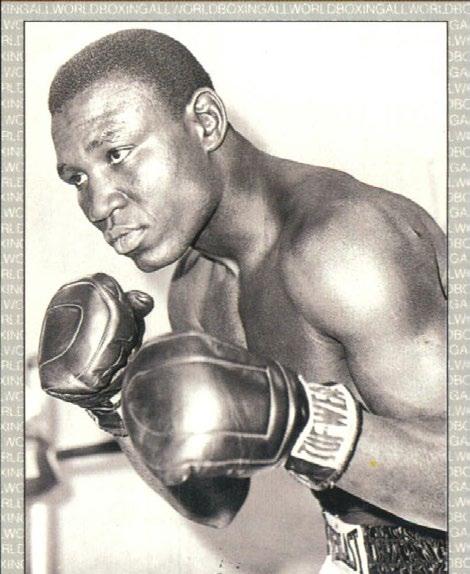
However, to ensure the partnership's success, a multifaceted approach is crucial. It is therefore recommended that the Ministry increases investment in Youth Programmes by providing financial support, training, and mentorship to young boxers, ensuring they have the necessary resources to develop their skills from an early age. There is also
Additionally, the strategic use of modern technology, such as surveillance systems, data analytics, and communication networks, can aid in monitoring and responding to crime in public spaces. However, the deployment of such technologies must be accompanied by robust oversight mechanisms and respect for privacy and civil liberties to prevent abuse and maintain public trust.
Furthermore, the role of regional and international cooperation in addressing Nigeria's security challenges cannot be overstated. Initiatives such as the Multinational Joint Task Force (MNJTF), comprising troops from Nigeria, Chad, Cameroon, Niger, and Benin, have been instrumental in combating the Boko Haram insurgency. Strengthening such regional partnerships and enhancing information-sharing mechanisms can contribute to more effective and coordinated efforts to tackle cross-border threats. In the quest for lasting security and stability, the need for a new generation of leaders who prioritise the welfare of the people and take responsibility for their offices is paramount. Leaders who are committed to the rule of law, security, and economic development can play a vital role in restoring confidence among both domestic and foreign investors and fostering a climate conducive to progress and prosperity.
These leaders must formulate appropriate policies and design strategies that directly address the root causes of insecurity, rather than merely treating the symptoms. By engaging with civil society, the private sector, and the international community, they can forge a collective effort to combat the challenges of insecurity and build a Nigeria that is safe, secure, and prosperous for all its citizens.
Moreover, these leaders must demonstrate a commitment to accountability and transparency, ensuring that security resources are managed effectively and efficiently, and that there is zero tolerance for corruption or complicity in criminal activities. Only through a concerted effort to uphold the principles of good governance can Nigeria hope to regain the trust of its citizens and the international community.
By addressing the root causes of insecurity, fostering good governance, and promoting economic development, Nigeria can emerge from the shadows of violence and criminality and reclaim its rightful place as a regional leader and a beacon of hope for a more prosperous and secure future. The path ahead is challenging, but with collective effort, determination, and a shared vision, a brighter future for Nigeria is within reach.
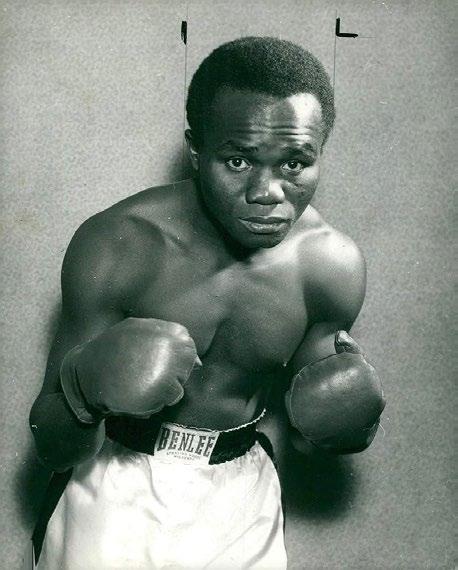 Ajagba
Tiger
Bassey
Ajagba
Tiger
Bassey

In recent weeks, Nigeria has once again found itself grappling with a harrowing resurgence of kidnappings, particularly targeting vulnerable groups, such as Internally Displaced Persons (IDPs) and students. These incidents have reignited the national conversation around the country's ongoing security crisis, which has been festering for years and now threatens to unravel the very fabric of Nigerian society.
The kidnappings are a grim echo of the horrors of the Chibok and Dapchi abductions, which have become emblematic of Nigeria's struggle against insurgency and criminality. In April 2014, the world watched in horror as the Boko Haram terrorist group abducted 276 schoolgirls from the town of Chibok, Borno State. This brazen act sparked global outrage and the #BringBackOurGirls campaign, drawing international attention to the plight of these innocent victims and the broader security challenges facing Nigeria.
Despite the efforts of the Nigerian Government and the international community, 98 of the Chibok girls remain unaccounted for, a harrowing reminder of the ongoing crisis and the failure of successive administrations to address the root causes of insecurity.
Similarly, in February 2018, the world watched in dismay as 110 schoolgirls were abducted from their school in Dapchi, Yobe State, by a faction of Boko Haram. While the majority of the Dapchi girls were eventually released, the trauma inflicted upon these young lives remains indelible and the events serve as a stark reminder of the vulnerabilities that persist within Nigeria's security architecture.
The parallels between these past tragedies and the current spate of kidnappings underscore the urgent need for a comprehensive understanding of the causes and implications of Nigeria's worsening insecurity, as well as the development of a multifaceted approach to address this crisis.
The recent kidnappings are part of a broader pattern of violence and criminality that has plagued Nigeria for years, with the country grappling with a range of security threats, including insurgencies, banditry, communal clashes and the proliferation of small arms and light weapons. This current escalation is a stark reminder of the urgent need for concerted efforts to address the underlying issues contributing to the insecurity.
One particularly concerning aspect of this crisis is the perceived direct involvement of government and security personnel in criminal activities. There are also allegations of illicit profiting from security budgets intended to combat criminal groups. This not only undermines the rule of law but also erodes public trust in the government's ability to secure the nation, further exacerbating the sense of vulnerability and insecurity felt by many Nigerians.
The proliferation of small arms and light weapons has also played a significant role in fueling the insecurity crisis in Nigeria. The porous nature of the country's borders courtesy of very corrupt customs service, has facilitated the influx of weapons, which have fallen into the hands of criminal groups and exacerbated the cycle of violence. Addressing this issue
requires a multifaceted approach involving improved border security, disarmament initiatives, and efforts to curb the illicit arms trade both within and across Nigeria's borders.
The implications of this insecurity for Nigeria's economic development and its quest for foreign investment are profound. Nigeria, a resource-rich

nation with a young and dynamic population, has been actively seeking foreign investment to revitalise its ailing economy. However, the ongoing insecurity poses a significant risk to investors, deterring both local and foreign stakeholders from committing their resources to the country.
The lack of security also undermines the social fabric of the country, affecting the citizens' well-being and the potential for economic growth. Businesses and individuals alike face the constant threat of kidnapping, extortion, and other forms of criminal activity, hindering their ability to operate and thrive in an environment plagued by uncertainty and fear. This climate of insecurity has far-reaching consequences, impeding infrastructure development, disrupting supply chains, and deterring tourism, all of which are crucial components of a thriving economy. Furthermore, the diversion of resources towards
security measures and ransom payments places a significant burden on both the public and private sectors, hampering economic progress and diverting funds away from essential services and development initiatives.
The economic toll of insecurity is particularly evident in Nigeria's agricultural sector, which has been severely impacted by the activities of armed groups and bandits in rural areas. Farmers have been forced to abandon their lands, leading to food insecurity and displacement, further exacerbating the country's humanitarian crisis. This highlights the interconnected nature of security, economic development, and human welfare, underscoring the need for a holistic approach to address these challenges.
The time for immediate action from the federal and state governments is now. The protection of its citizens and the restoration of security must be the top priority. This requires a multifaceted approach that addresses the root causes of these problems.
One crucial step is to focus on economic development and job creation, as poverty and lack of opportunity are significant contributors to the insecurity crisis. By investing in education, infrastructure, and viable economic opportunities, President Bola Tinubu and State Governors can address the socioeconomic factors that drive individuals towards criminal activities.
Furthermore, the government must adopt a robust combination of legislative and judicial interventions, backed with good governance, to tackle insecurity in Nigeria. This includes strengthening the rule of law, promoting transparency and accountability, and ensuring that the security forces operate within the bounds of the law and respect for human rights. Addressing corruption and ensuring that resources are allocated effectively and efficiently is paramount in restoring public trust and enhancing the capacity of security agencies to fulfill their mandate.
Crucial to this effort is the need for comprehensive security sector reform, which has been a long-standing challenge in Nigeria. This includes addressing issues such as inadequate training, poor equipment, and low morale among security personnel, as well as promoting professionalism and accountability within the ranks. By strengthening the capacity and integrity of the security forces, Nigeria can better respond to the multifaceted challenges it faces and regain the trust of its citizens.
Effective community policing and intelligence gathering can play a pivotal role in combating insecurity. By localising the personnel in charge and by fostering strong relationships between law enforcement and local communities, valuable information can be gathered to prevent and disrupt criminal activities. This approach recognises the importance of community cooperation and engagement in addressing security challenges, and it can help bridge the gap between security forces and the populations they serve.
Continues on Page 47

One particularly concerning aspect of this crisis is the perceived direct involvement of government and security personnel in criminal activities. There are also allegations of illicit profiting from security budgets intended to combat criminal groups